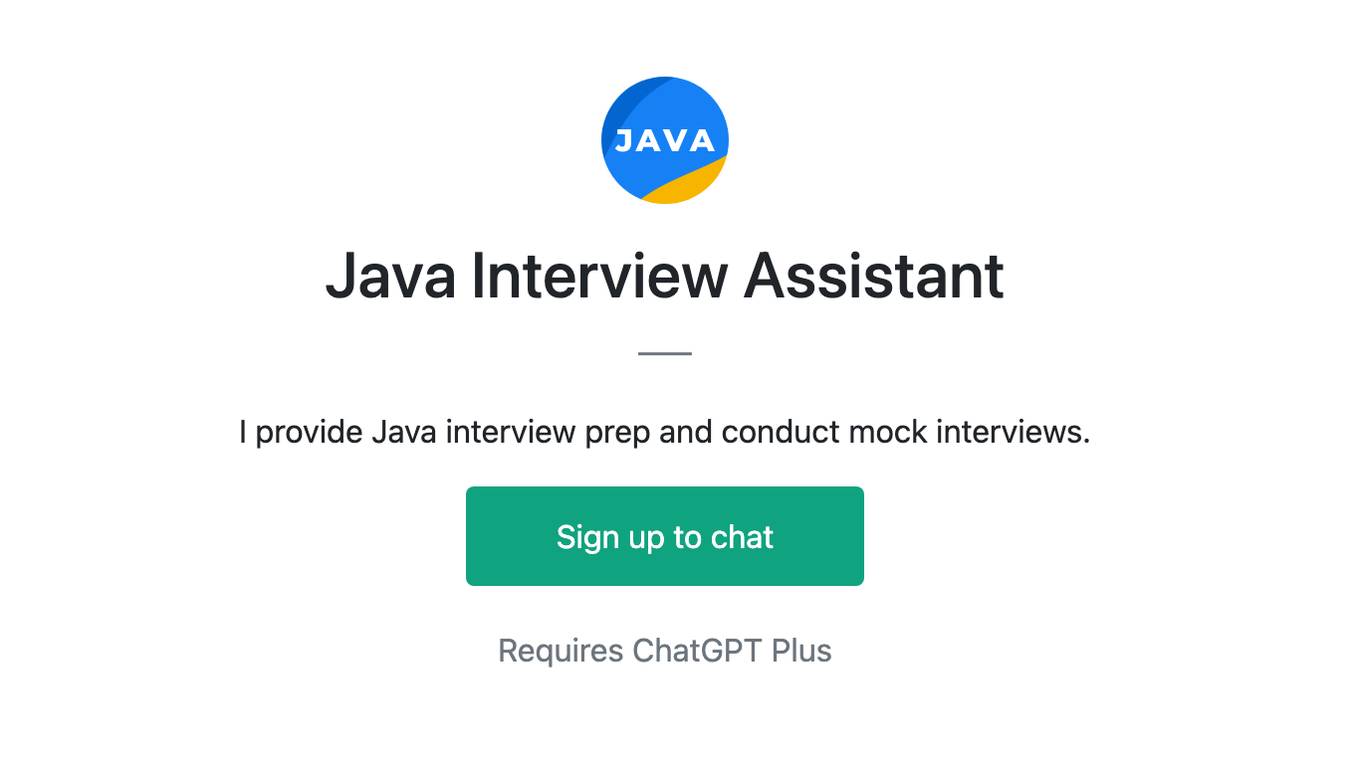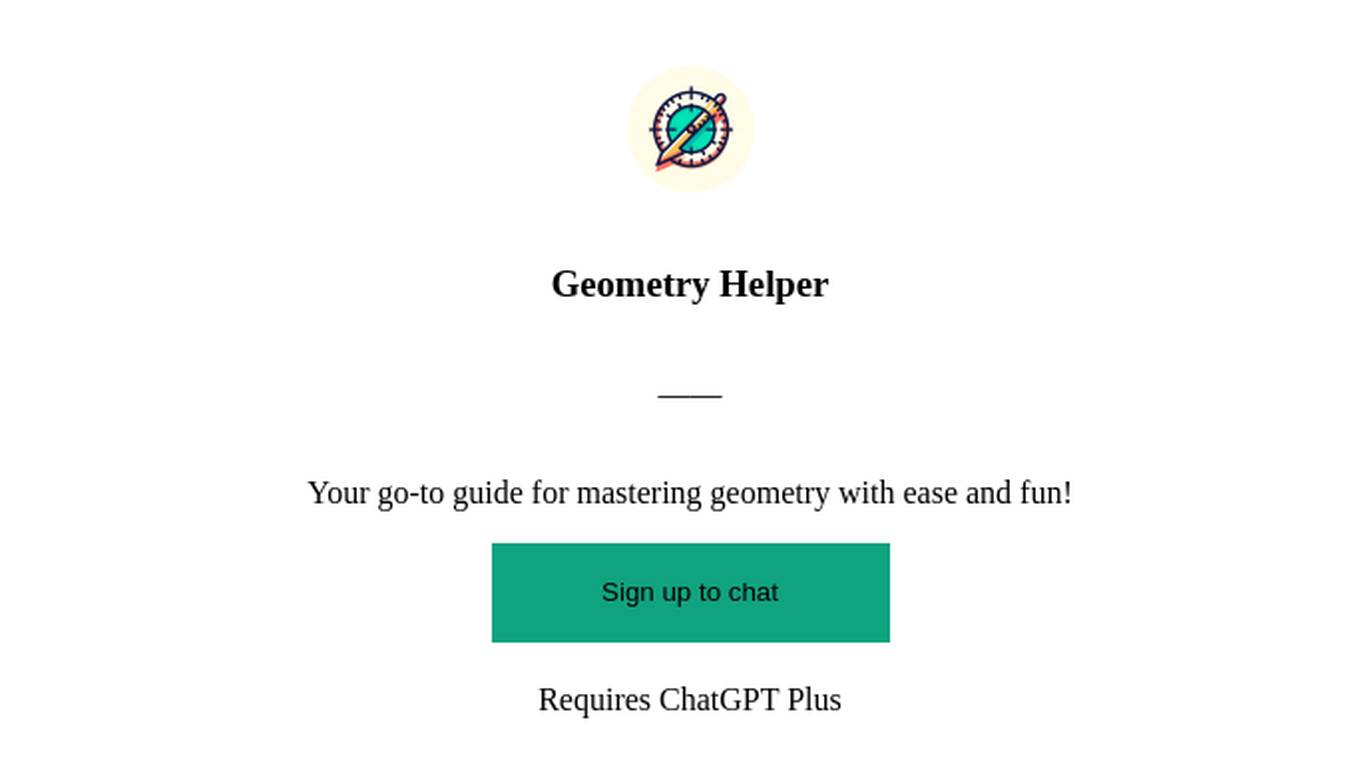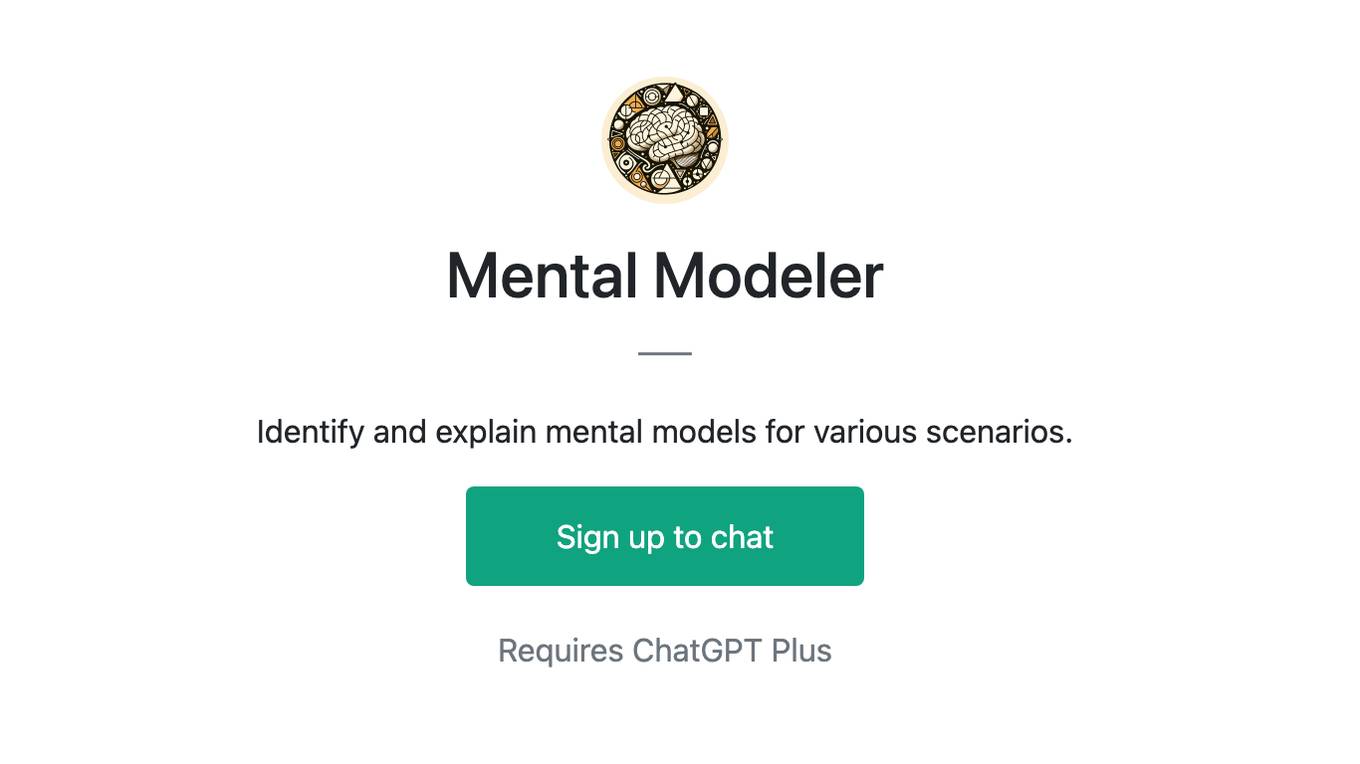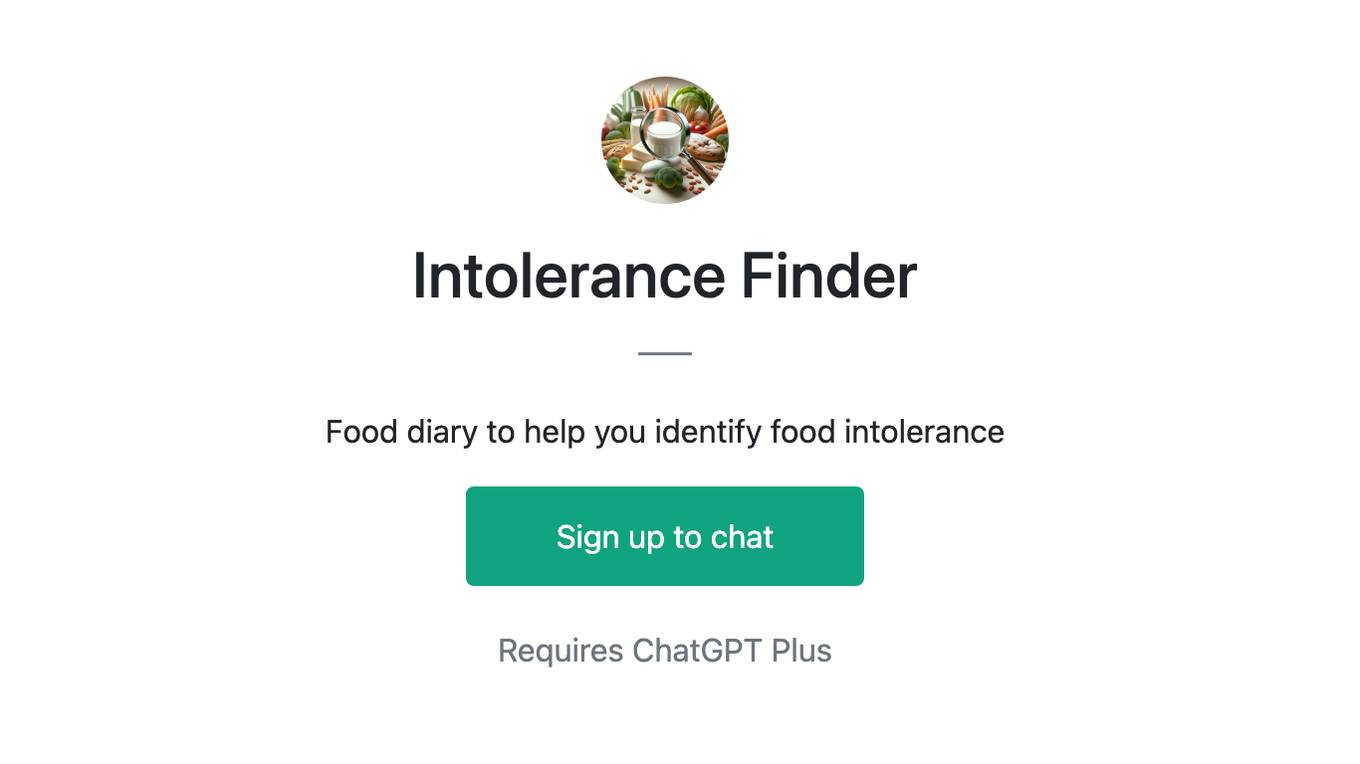Best AI tools for< Identify Areas Where Accessibility Can Be Improved >
20 - AI tool Sites
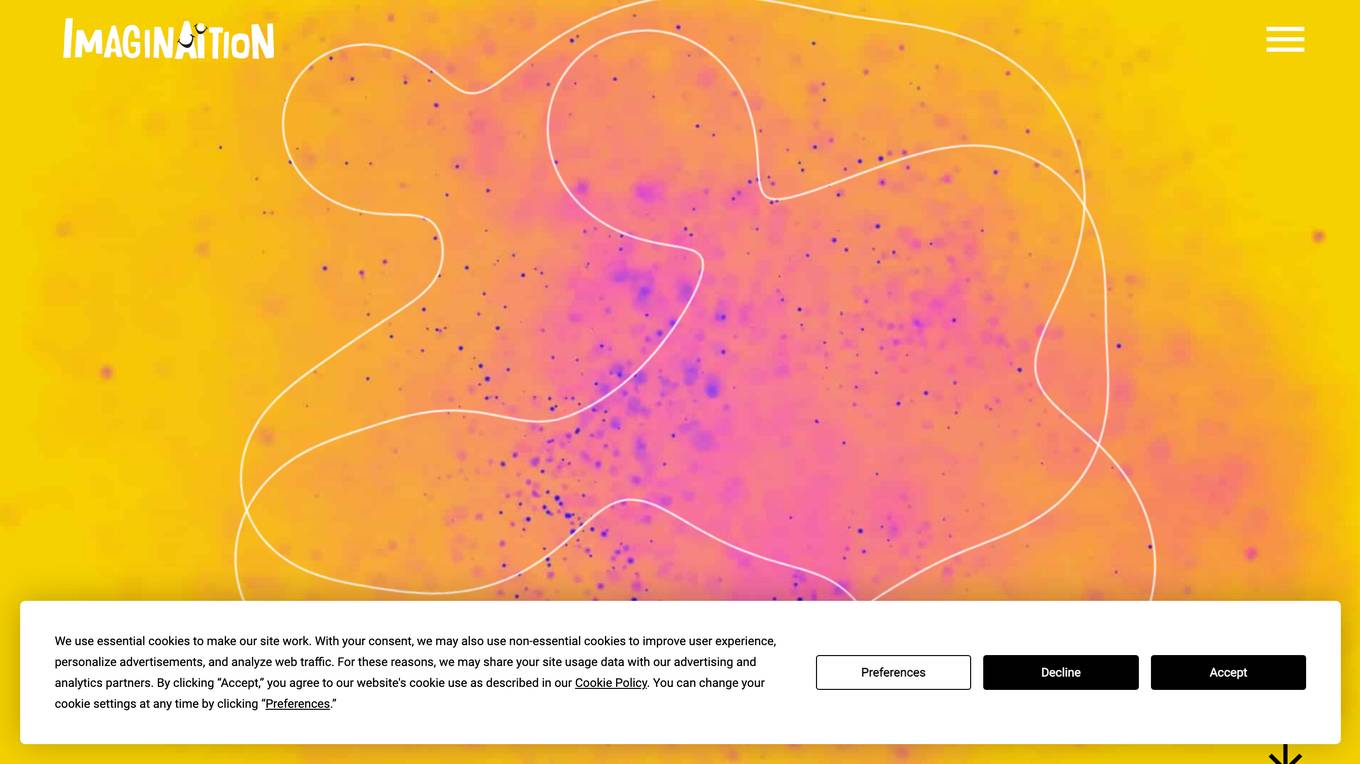
IMAGINaiTION
IMAGINaiTION is a company that uses artificial intelligence (AI) to create solutions for real-world problems. They believe that AI can be used to make the world a more inclusive and equitable place. One of their projects is a Mobile App Accessibility Audit Tool that uses AI to analyze mobile apps and identify areas where accessibility can be improved. This tool is designed to help developers create more accessible apps that can be used by everyone, regardless of their abilities.
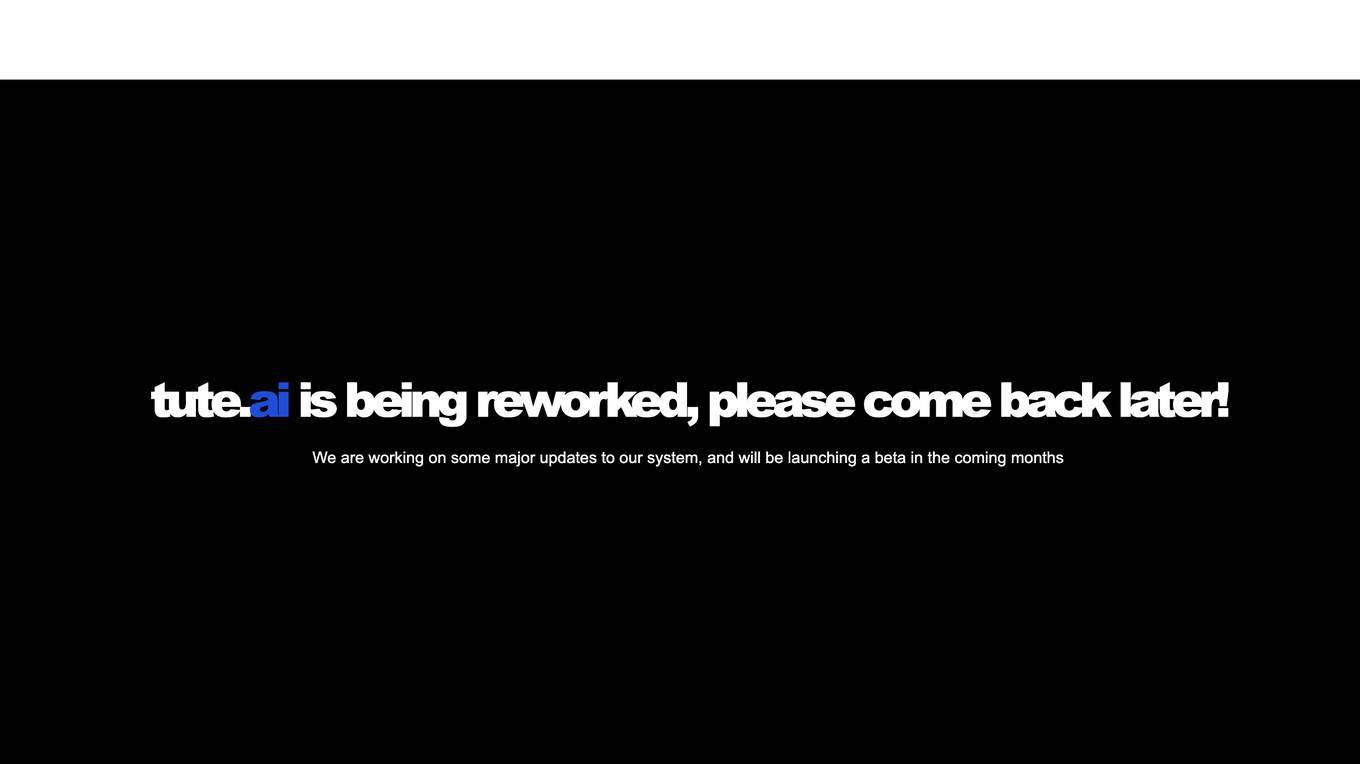
Tute.ai
Tute.ai is an AI-powered learning platform that provides personalized learning experiences for students. It uses AI to track student progress, identify areas where they need extra support, and provide them with tailored learning materials. Tute.ai also offers a variety of features to help students learn, such as interactive exercises, quizzes, and games.
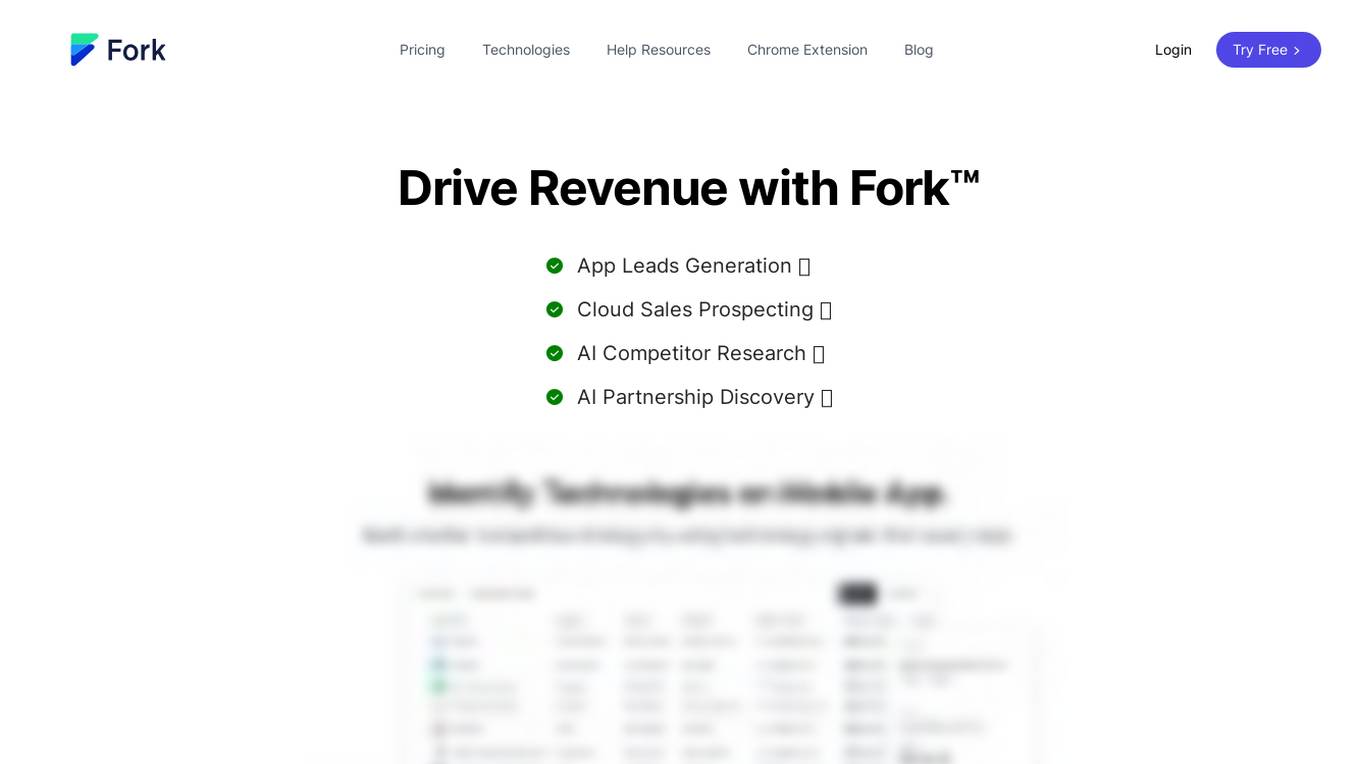
Fork.ai
Fork.ai is a tool that helps businesses identify technologies used in mobile apps. With Fork.ai, businesses can gain insights into their competitors' tech stacks, identify potential partners, and generate leads. Fork.ai's key features include: - Technology identification: Fork.ai can identify over 1,000 technologies used in mobile apps, including programming languages, frameworks, libraries, and SDKs. - Competitor analysis: Fork.ai provides insights into the technologies used by your competitors, allowing you to identify areas where you can gain a competitive advantage. - Lead generation: Fork.ai can help you generate leads by identifying potential customers who are using specific technologies. - Partnership discovery: Fork.ai can help you identify potential partners who are using complementary technologies.
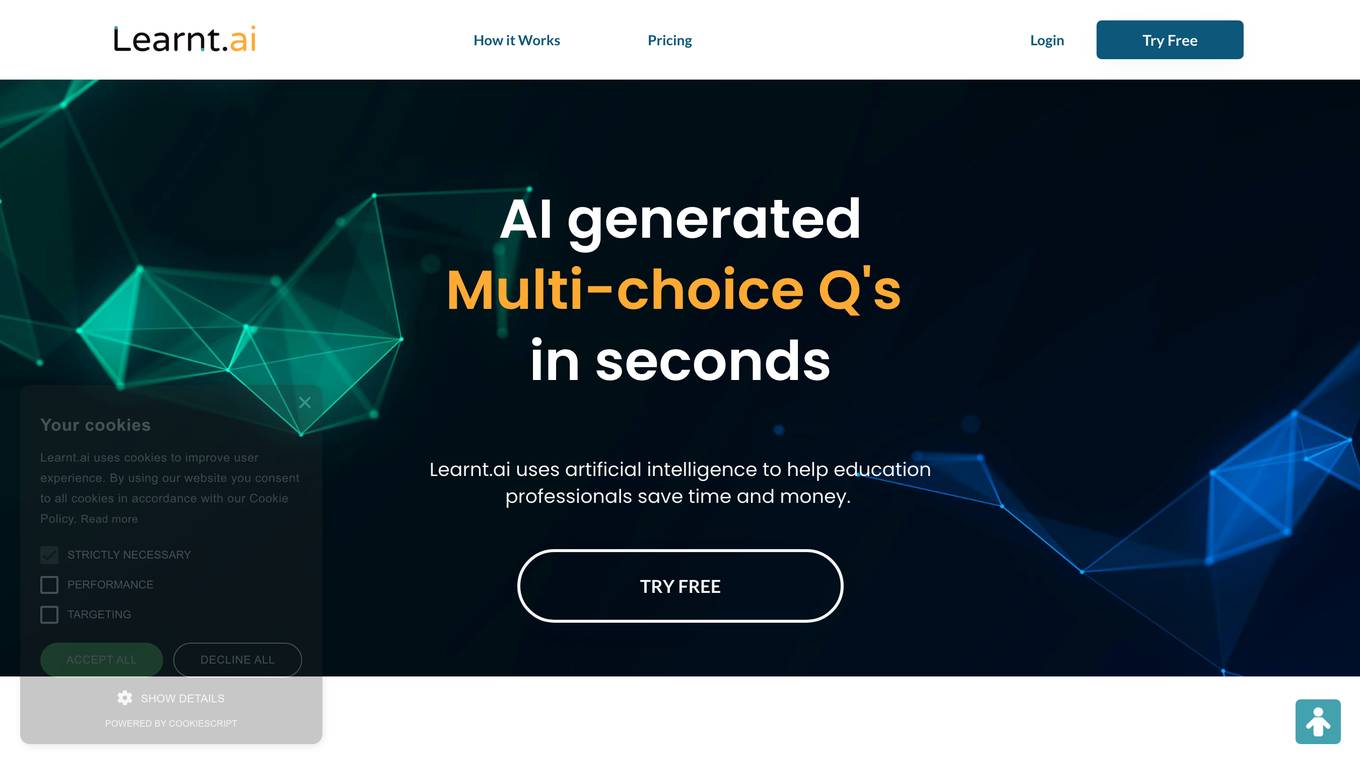
Learnt.ai
Learnt.ai is an AI-powered learning platform that provides personalized learning experiences for students. It uses artificial intelligence to analyze student data and identify areas where they need additional support. Learnt.ai then creates personalized learning plans that are tailored to each student's individual needs. The platform also provides students with access to a variety of learning resources, including videos, articles, and interactive exercises.
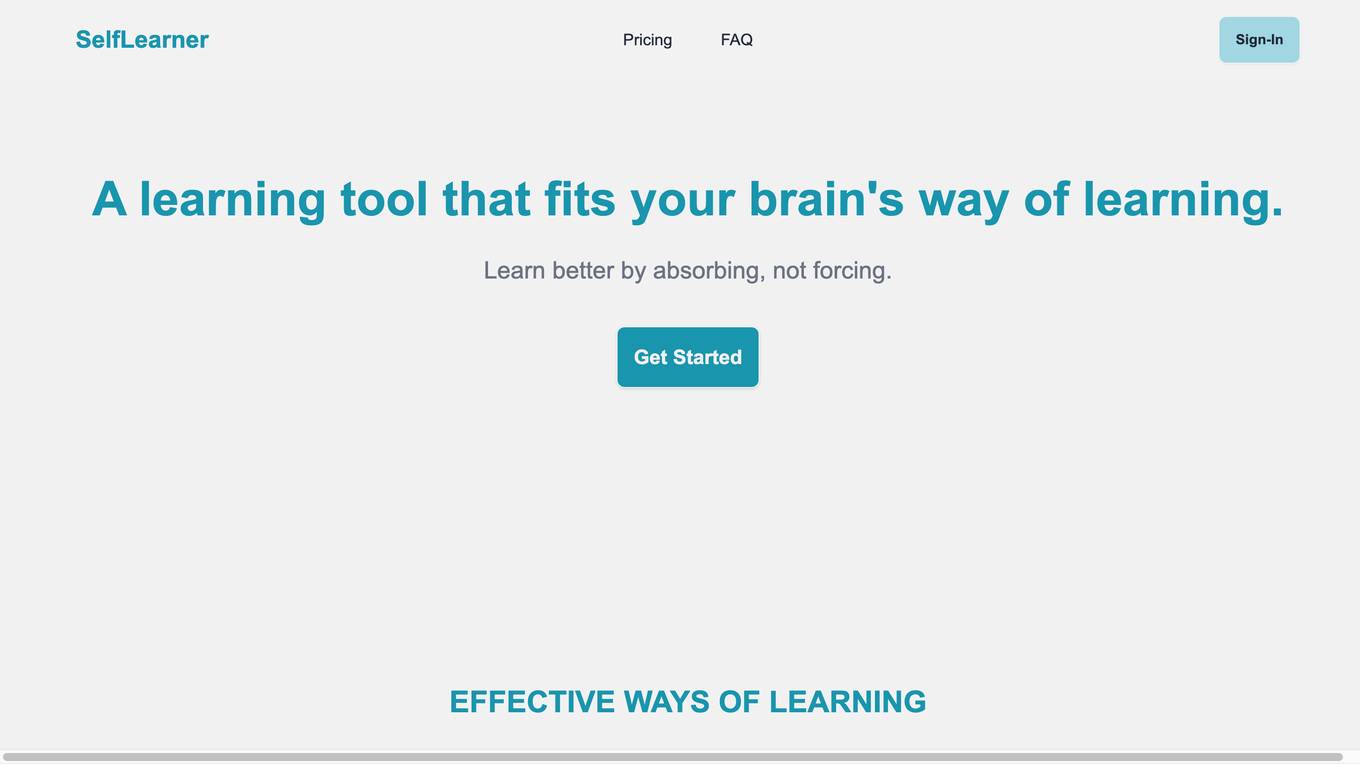
SelfLearner
SelfLearner is an AI-powered learning platform that provides personalized learning experiences for students of all ages. The platform uses artificial intelligence to track student progress, identify areas where they need additional support, and provide them with tailored learning materials. SelfLearner also offers a variety of interactive learning activities, such as games, simulations, and quizzes, to help students learn in a fun and engaging way.
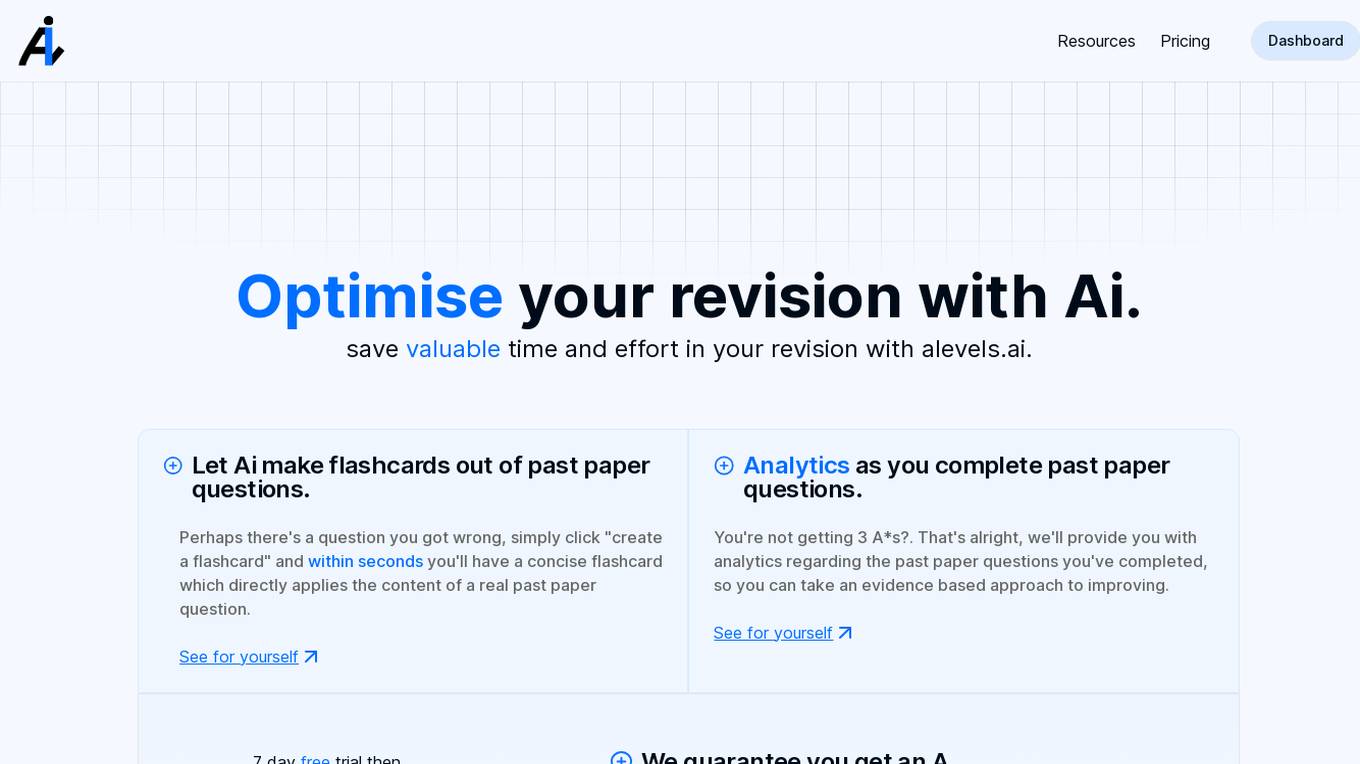
A-Levels.ai
A-Levels.ai is an online learning platform that provides students with personalized learning experiences. The platform uses artificial intelligence to track student progress and identify areas where they need additional support. A-Levels.ai also provides students with access to a library of resources, including video lessons, practice questions, and past papers.

Hotjar
Hotjar is a website heatmaps and behavior analytics tool that helps businesses understand how users interact with their websites. It provides a suite of tools to track user behavior, including heatmaps, recordings, surveys, and feedback. Hotjar is used by over 1,306,323 websites in 180+ countries.
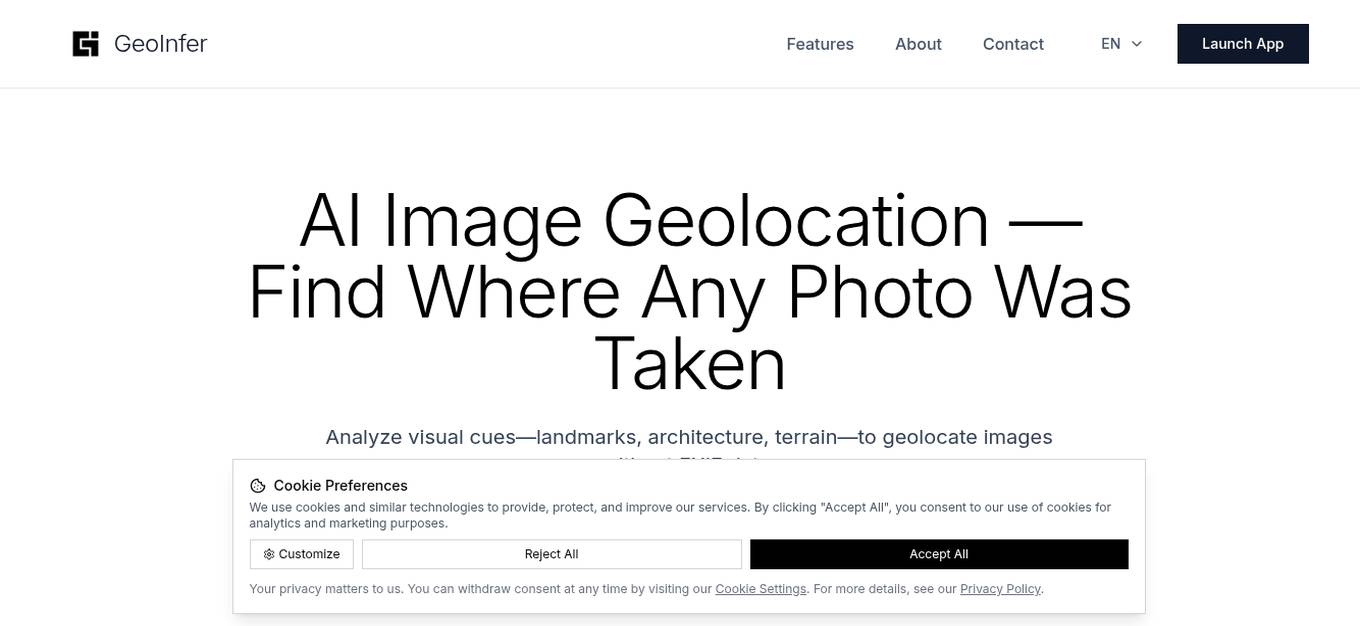
GeoInfer
GeoInfer is a professional AI-powered geolocation platform that analyzes photographs to determine where they were taken. It uses visual-only inference technology to examine visual elements like architecture, terrain, vegetation, and environmental markers to identify geographic locations without requiring GPS metadata or EXIF data. The platform offers transparent accuracy levels for different use cases, including a Global Model with 1km-100km accuracy ideal for regional and city-level identification. Additionally, GeoInfer provides custom regional models for organizations requiring higher precision, such as meter-level accuracy for specific geographic areas. The platform is designed for professionals in various industries, including law enforcement, insurance fraud investigation, digital forensics, and security research.
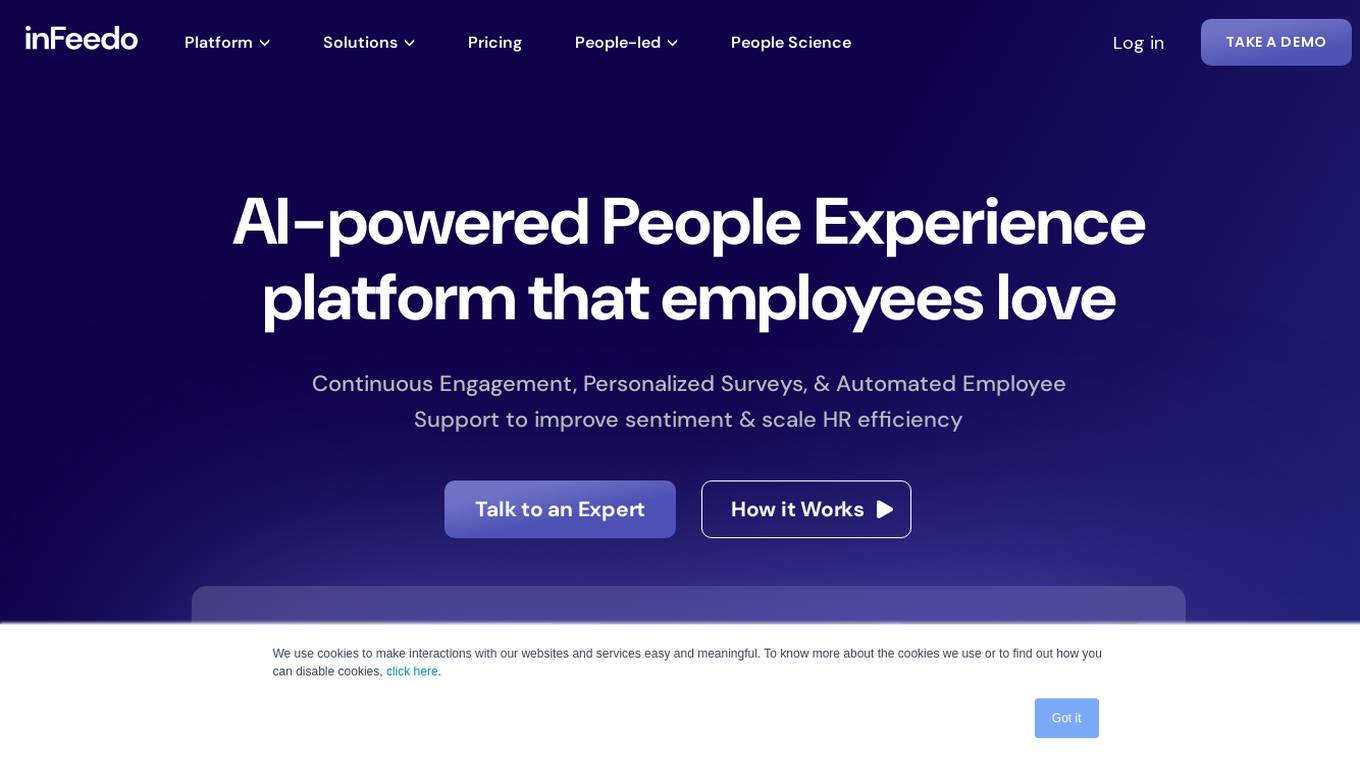
Amber by inFeedo
Amber by inFeedo is an AI-powered employee experience platform that helps organizations collect, analyze, and act on employee feedback. It provides a suite of tools to measure employee engagement, identify areas for improvement, and track progress over time. Amber's AI capabilities enable it to analyze employee feedback in real-time, identify trends and patterns, and provide personalized recommendations to managers. With Amber, organizations can gain a deeper understanding of their employees' needs and create a more positive and productive work environment.
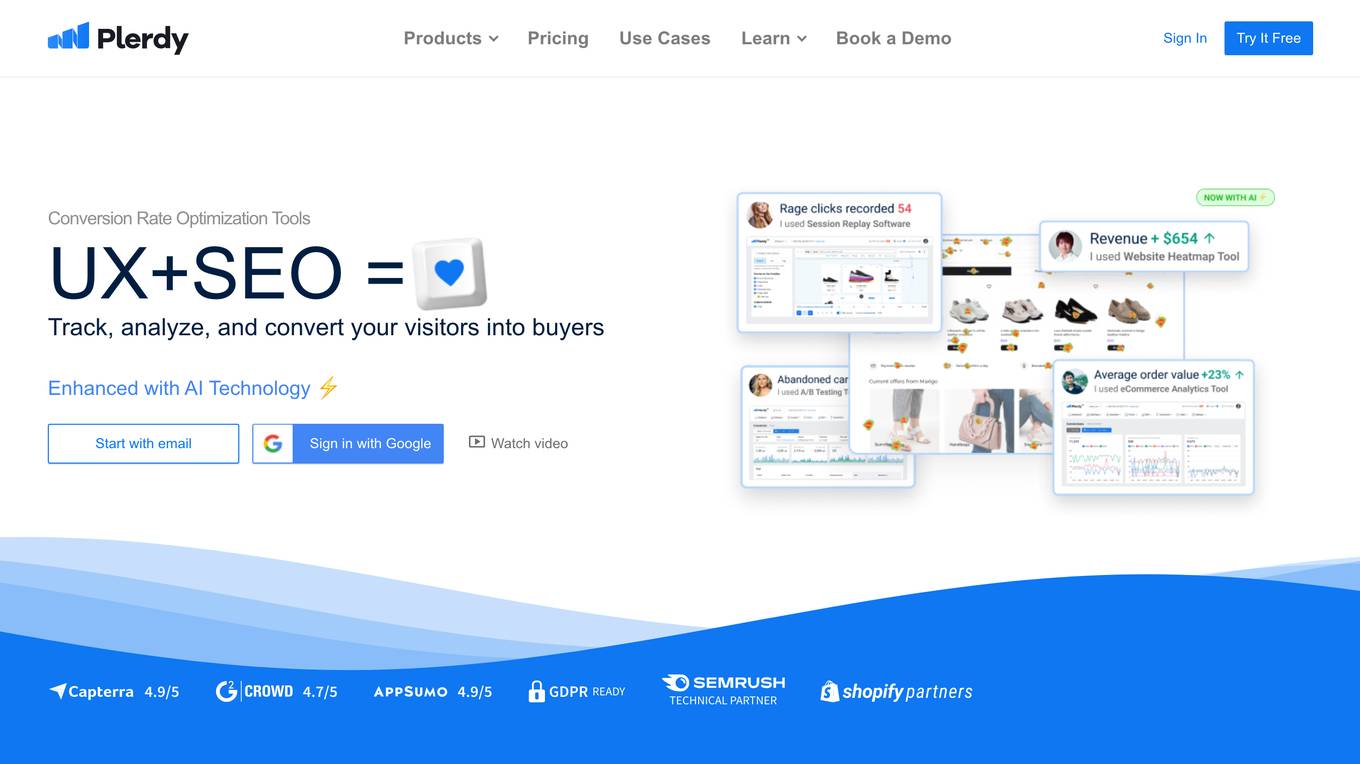
Plerdy
Plerdy is a comprehensive suite of conversion rate optimization tools that helps businesses track, analyze, and convert their website visitors into buyers. With a range of features including website heatmaps, session replay software, pop-up software, website feedback tools, and more, Plerdy provides businesses with the insights they need to improve their website's usability and conversion rates.
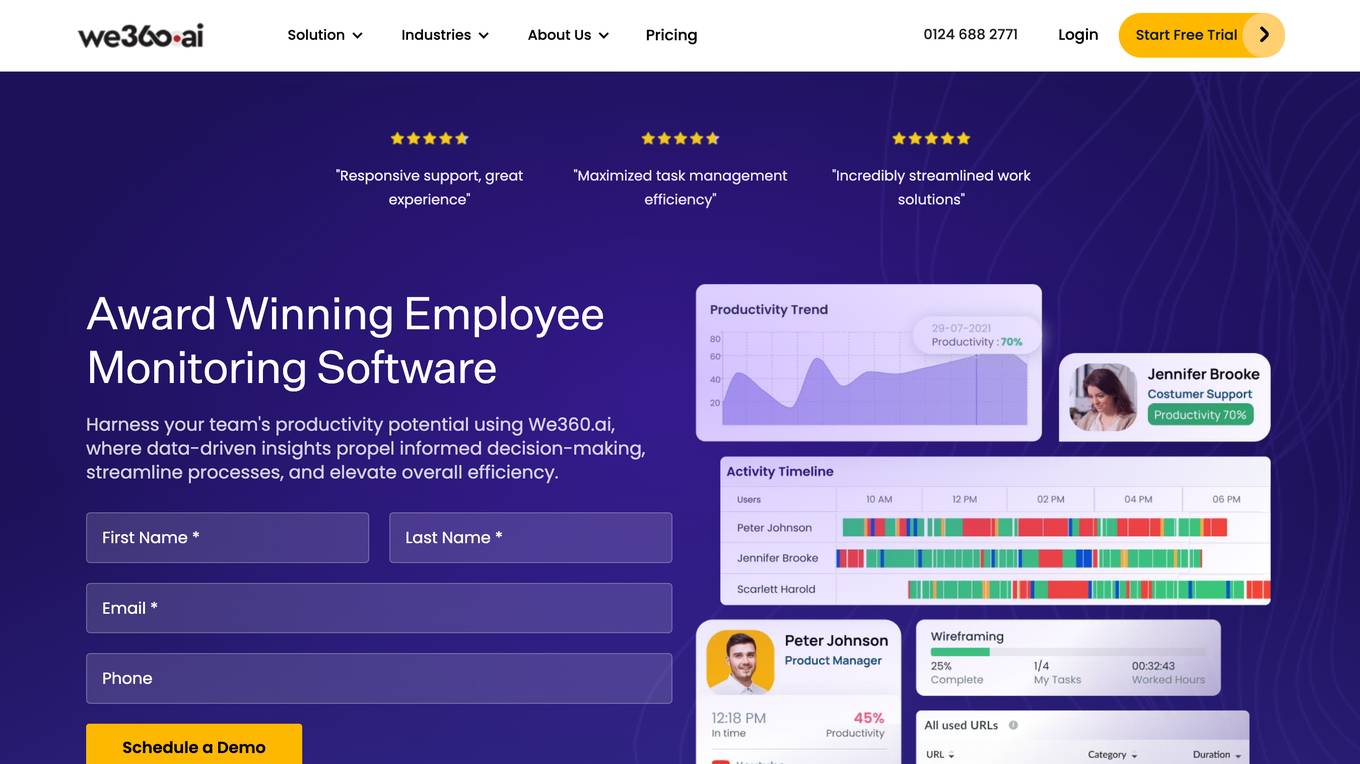
We360.ai
We360.ai is an award-winning employee monitoring software that helps businesses track employee productivity, attendance, and time. It offers a range of features such as real-time screenshots, app usage tracking, and detailed reports. We360.ai is designed to help businesses improve efficiency, streamline processes, and make informed decisions.

RightJoin
RightJoin is an AI-powered mock interview platform that helps users prepare for job interviews. It offers personalized interviews tailored to the user's background, role, and company. Users can practice answering common interview questions, receive instant feedback, and identify areas for improvement. RightJoin also provides access to a community of coaches and recruiters for additional support.
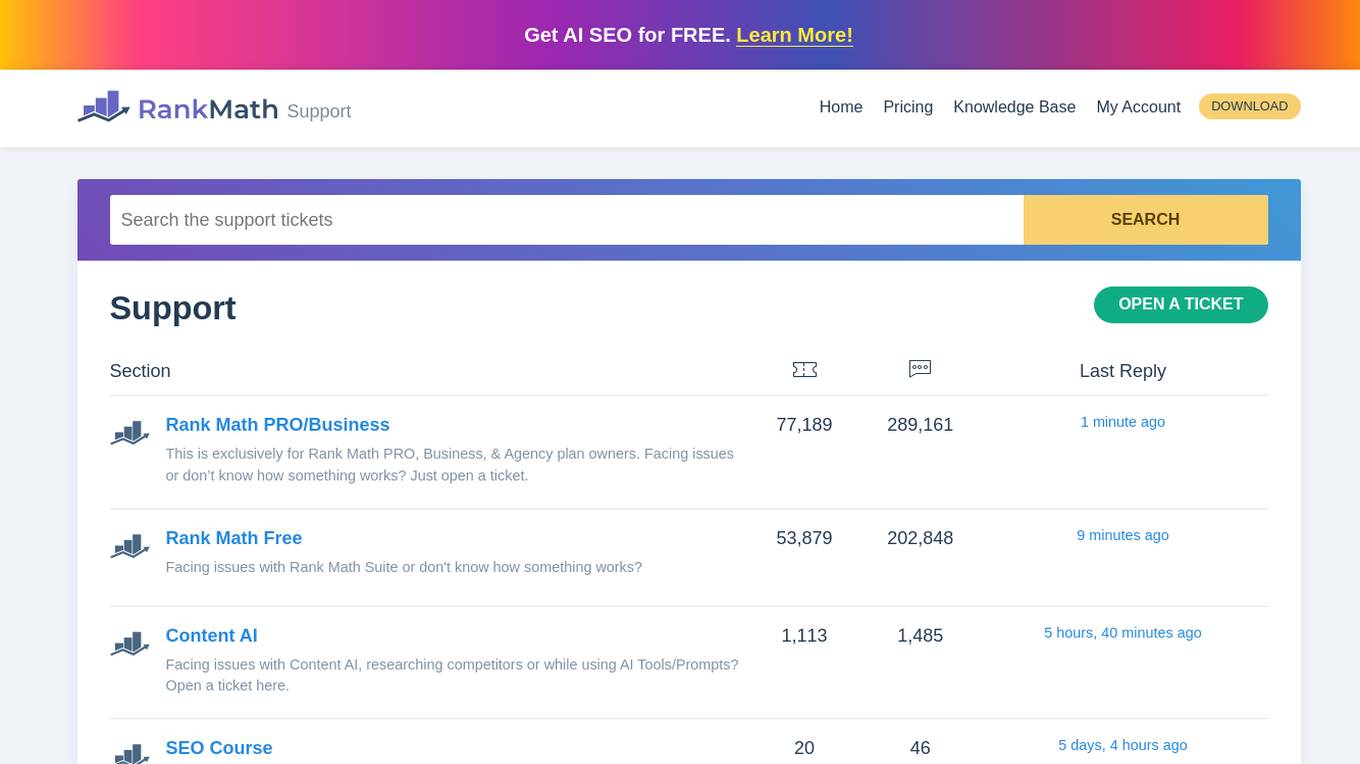
Rank Math
Rank Math is an AI-powered SEO tool that helps you optimize your website for search engines. It offers a variety of features to help you improve your website's ranking, including keyword research, on-page optimization, and link building. Rank Math also provides detailed analytics to help you track your progress and identify areas for improvement.
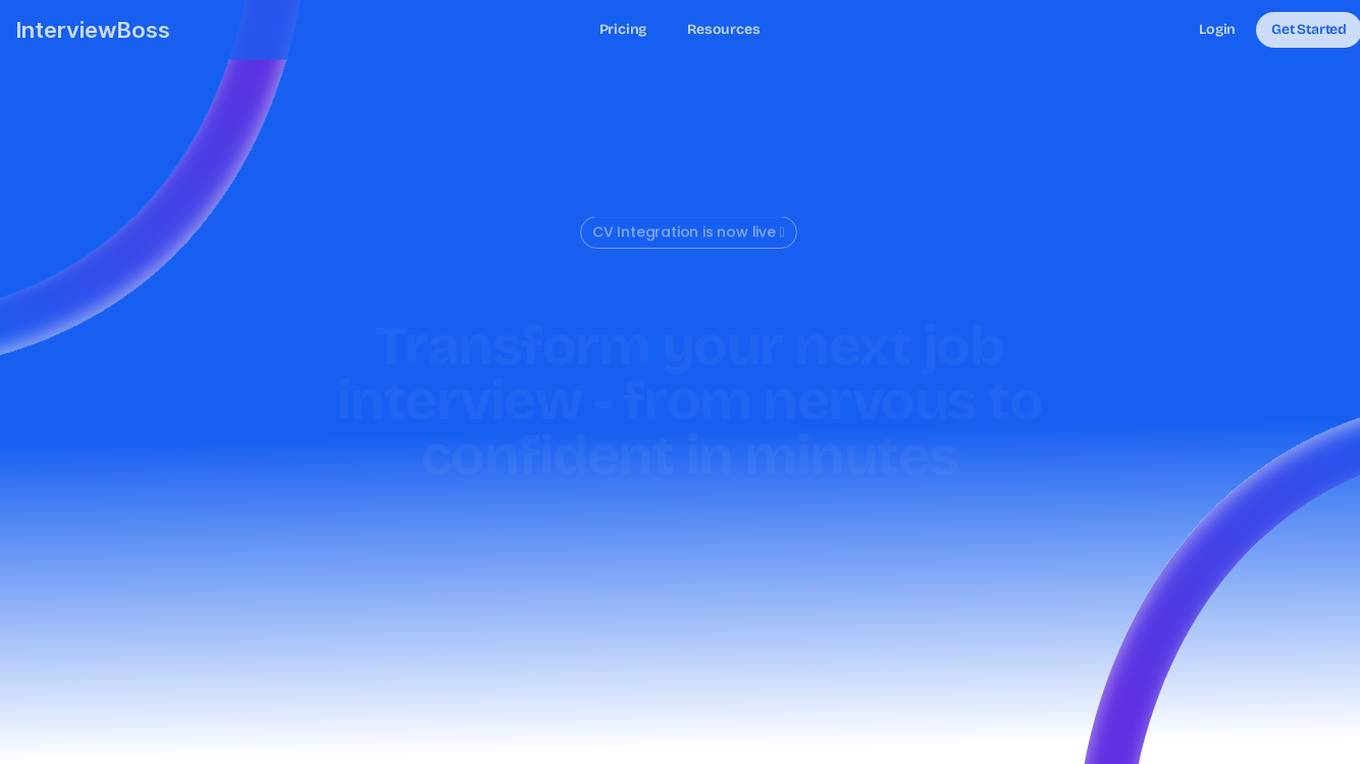
InterviewBoss
InterviewBoss is an AI-powered interview preparation platform that helps you practice your interviewing skills and get feedback from real interviewers. With InterviewBoss, you can access a library of over 1,000 interview questions, practice your answers with our AI-powered chatbot, and get feedback from real interviewers on your performance. InterviewBoss is the perfect way to prepare for your next job interview and land your dream job.
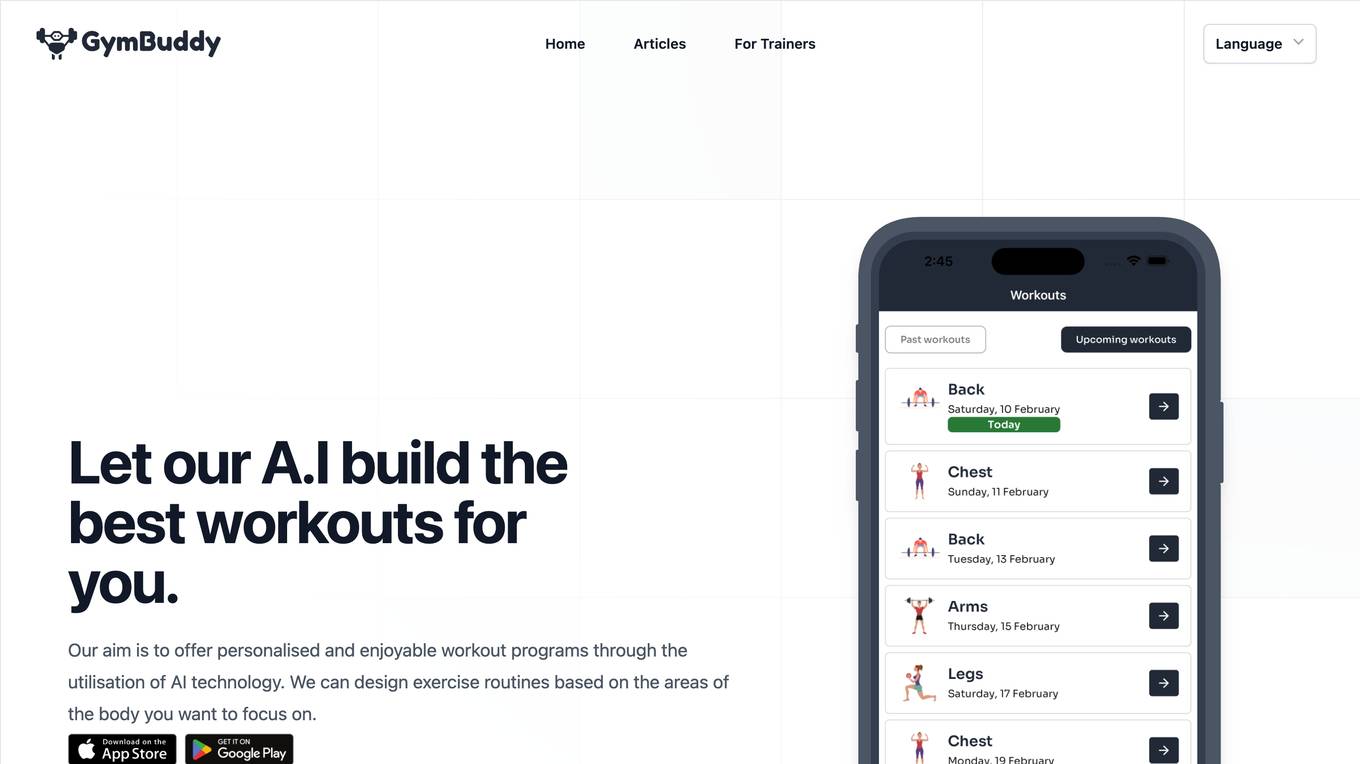
GymBuddy
GymBuddy is an AI-powered workout planner that helps users create personalized and effective workout routines. It uses AI technology to analyze user data and provide tailored exercise recommendations based on their fitness goals and body composition. The app also includes features for tracking progress, monitoring weight, and identifying areas for improvement. With its user-friendly interface and advanced analytics, GymBuddy aims to make fitness accessible and enjoyable for everyone.

Confident AI
Confident AI is an open-source evaluation infrastructure for Large Language Models (LLMs). It provides a centralized platform to judge LLM applications, ensuring substantial benefits and addressing any weaknesses in LLM implementation. With Confident AI, companies can define ground truths to ensure their LLM is behaving as expected, evaluate performance against expected outputs to pinpoint areas for iterations, and utilize advanced diff tracking to guide towards the optimal LLM stack. The platform offers comprehensive analytics to identify areas of focus and features such as A/B testing, evaluation, output classification, reporting dashboard, dataset generation, and detailed monitoring to help productionize LLMs with confidence.
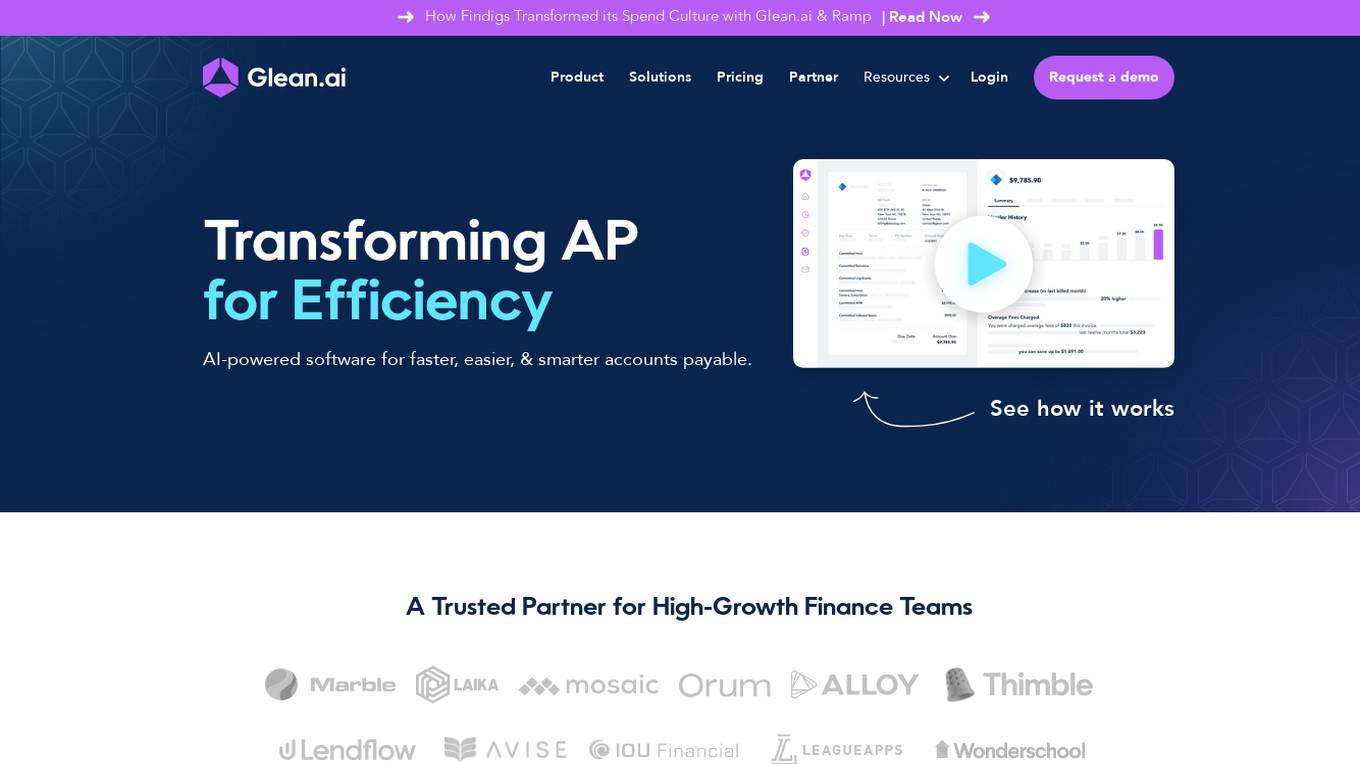
Glean.ai
Glean.ai is an AI-powered software designed to enhance accounts payable (AP) processes, making them faster, easier, and smarter. It offers a range of features to streamline AP tasks, including automated data extraction, GL coding, bill approvals and payments, accruals, prepaid amortizations, and more. Glean.ai also provides valuable insights into spending patterns, helping businesses identify areas of overspending and uncover opportunities for cost savings. With its user-friendly interface and robust data benchmarking capabilities, Glean.ai empowers accounting and FP&A teams to collaborate seamlessly, plan effectively, and make informed decisions regarding vendor spend.

VisualHUB
VisualHUB is an AI-powered design analysis tool that provides instant insights on UI, UX, readability, and more. It offers features like A/B Testing, UI Analysis, UX Analysis, Readability Analysis, Margin and Hierarchy Analysis, and Competition Analysis. Users can upload product images to receive detailed reports with actionable insights and scores. Trusted by founders and designers, VisualHUB helps optimize design variations and identify areas for improvement in products.
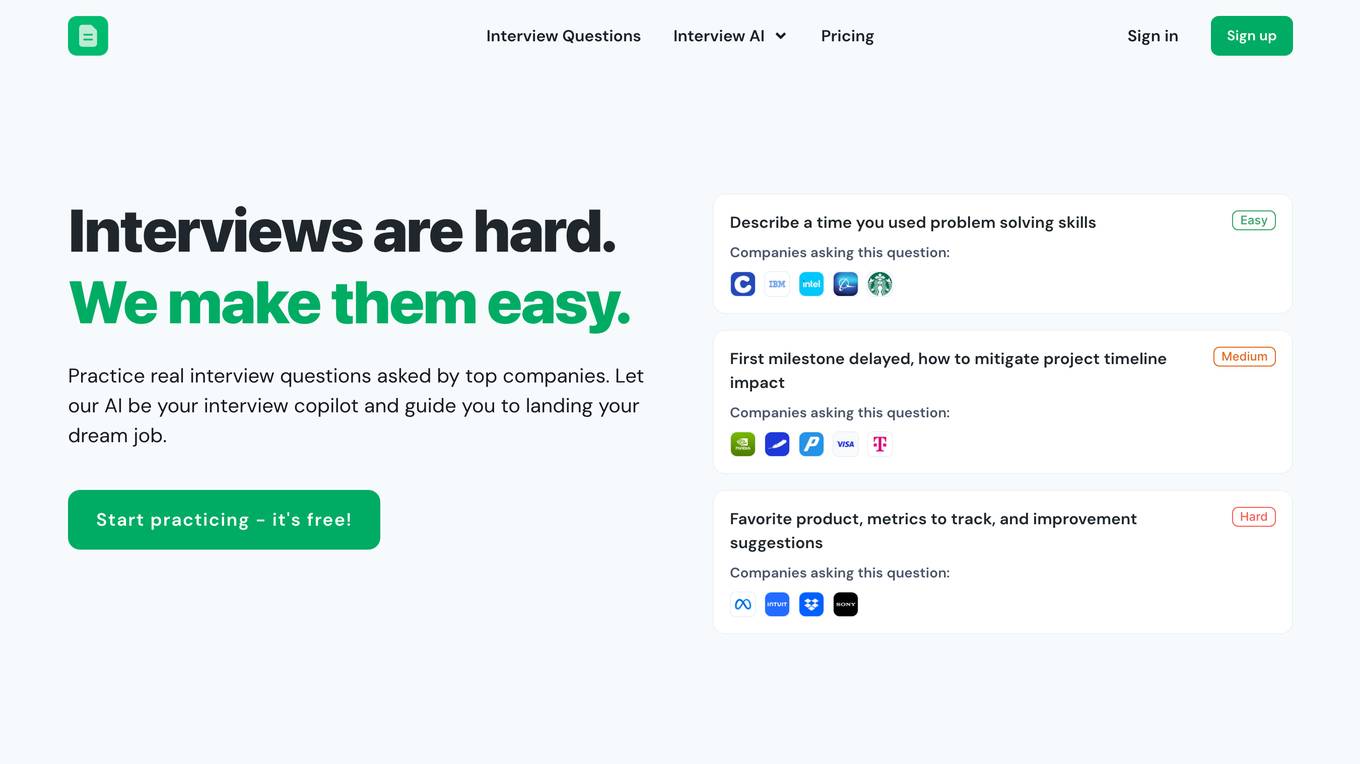
Interview.study
Interview.study is an AI-powered interview preparation platform that helps candidates practice real interview questions asked by top companies. The platform provides users with instant feedback on their responses, helping them identify areas for improvement and develop stronger answers. Interview.study also offers a variety of features to help candidates prepare for their interviews, including a database of interview questions, a mock interview tool, and a resume builder.
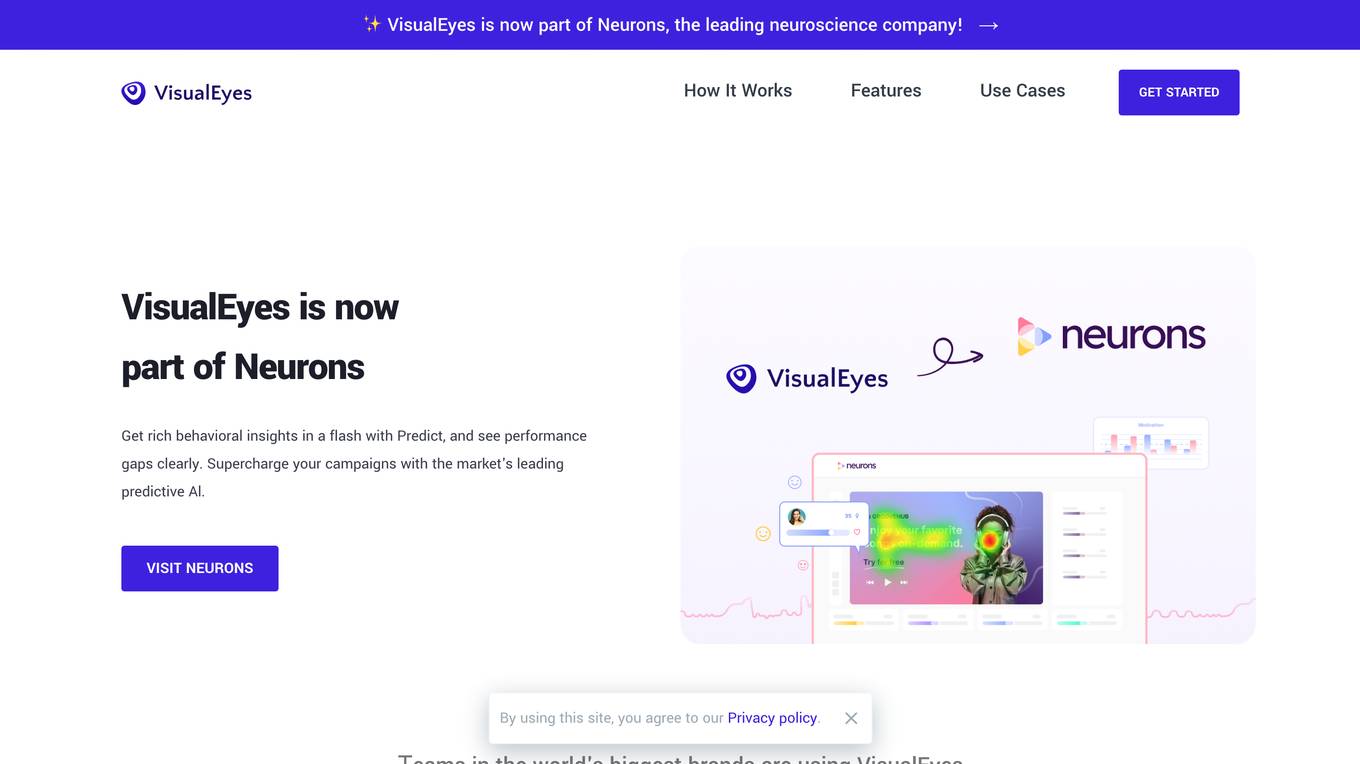
VisualEyes
VisualEyes is a user experience (UX) optimization tool that uses attention heatmaps and clarity scores to help businesses improve the effectiveness of their digital products. It provides insights into how users interact with websites and applications, allowing businesses to identify areas for improvement and make data-driven decisions about their designs. VisualEyes is part of Neurons, a leading neuroscience company that specializes in providing AI-powered solutions for businesses.
0 - Open Source AI Tools
20 - OpenAI Gpts
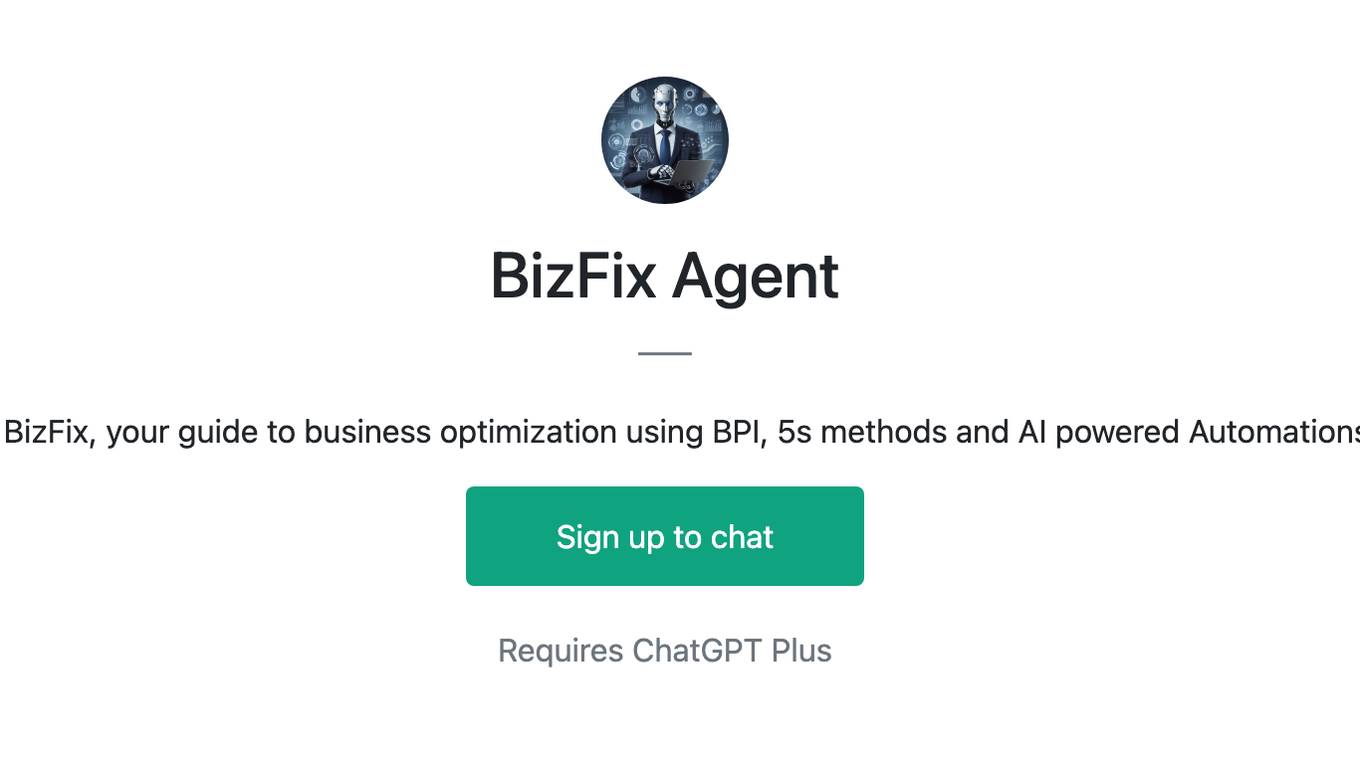
BizFix Agent
I'm BizFix, your guide to business optimization using BPI, 5s methods and AI powered Automations.
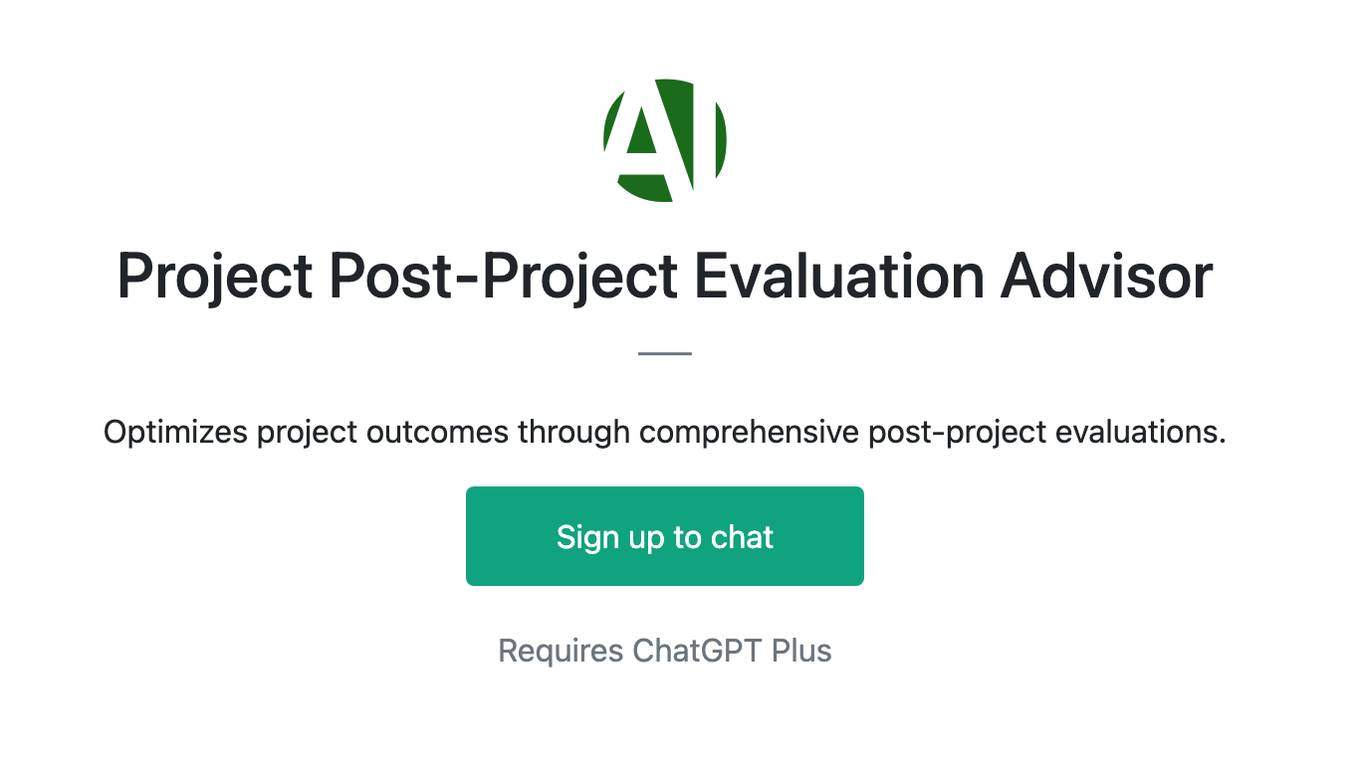
Project Post-Project Evaluation Advisor
Optimizes project outcomes through comprehensive post-project evaluations.
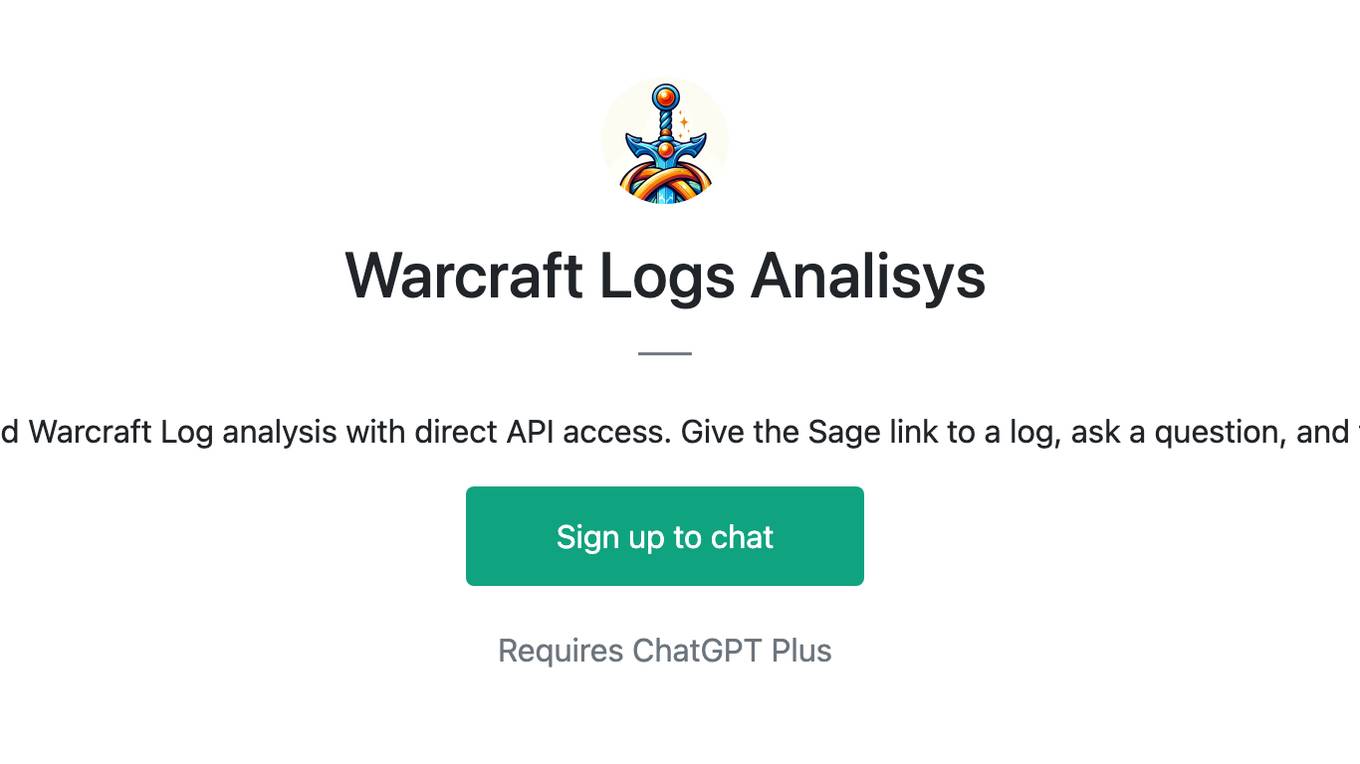
Warcraft Logs Analisys
Azeroth Data Sage: A detailed Warcraft Log analysis with direct API access. Give the Sage link to a log, ask a question, and the Data Sage will provide!
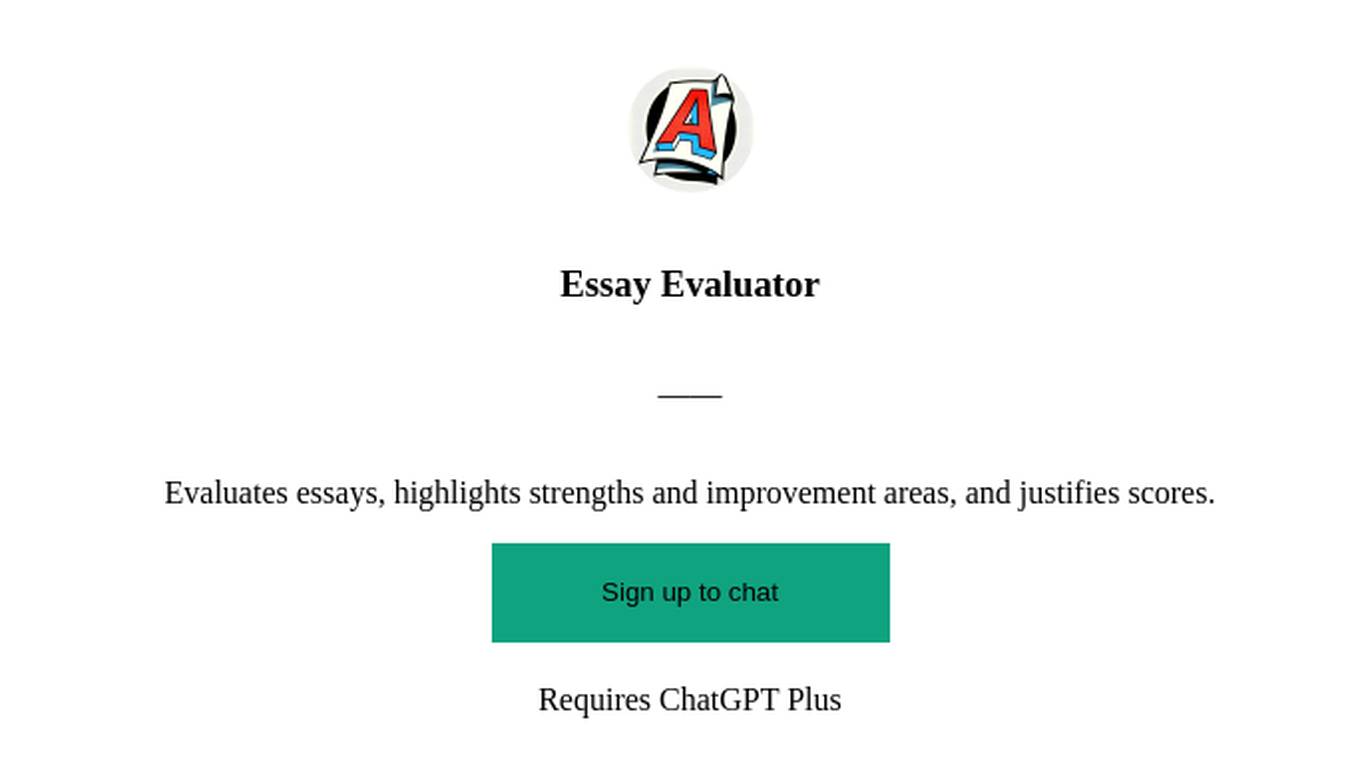
Essay Evaluator
Evaluates essays, highlights strengths and improvement areas, and justifies scores.
Disclosure-Analysis
Upload disclosure documents, and I will summarize what's going on, identify red flag areas to look closer at, and answer all Q&A!
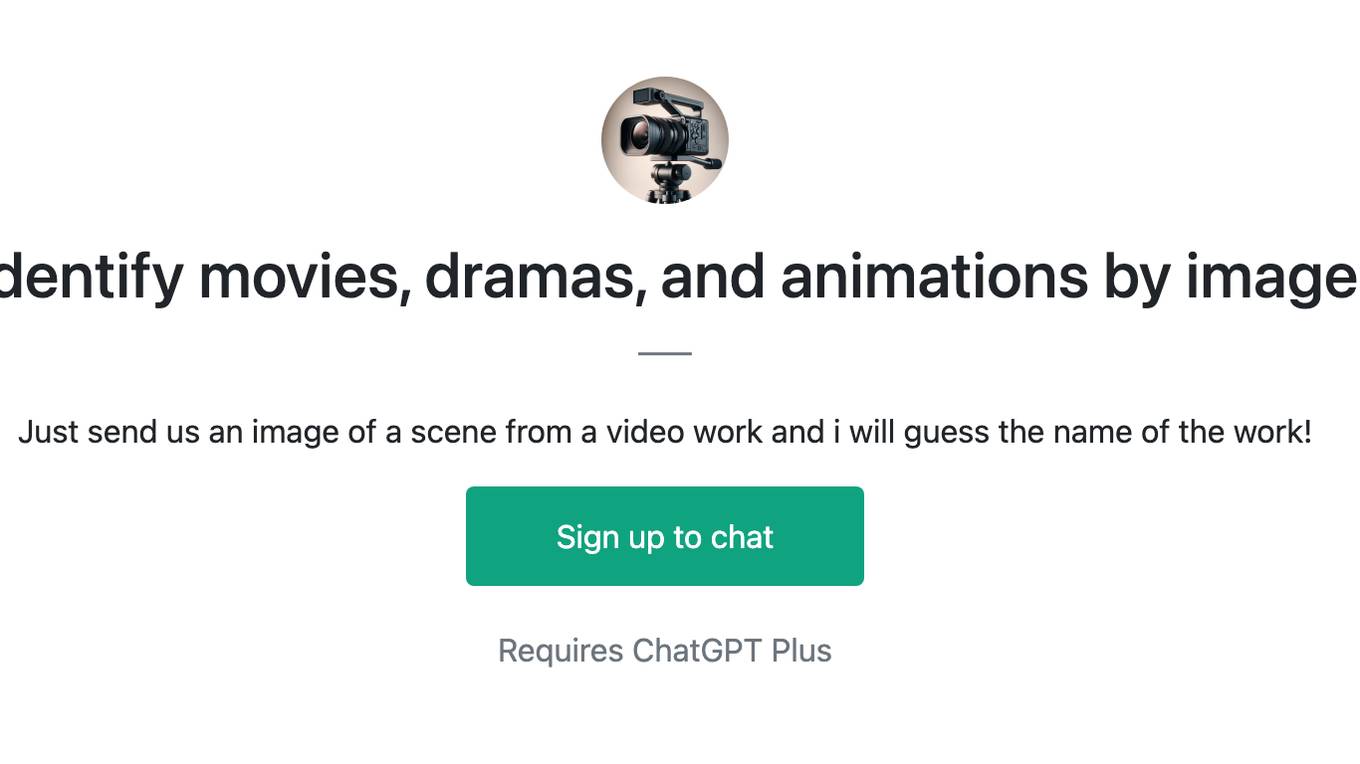
Identify movies, dramas, and animations by image
Just send us an image of a scene from a video work and i will guess the name of the work!
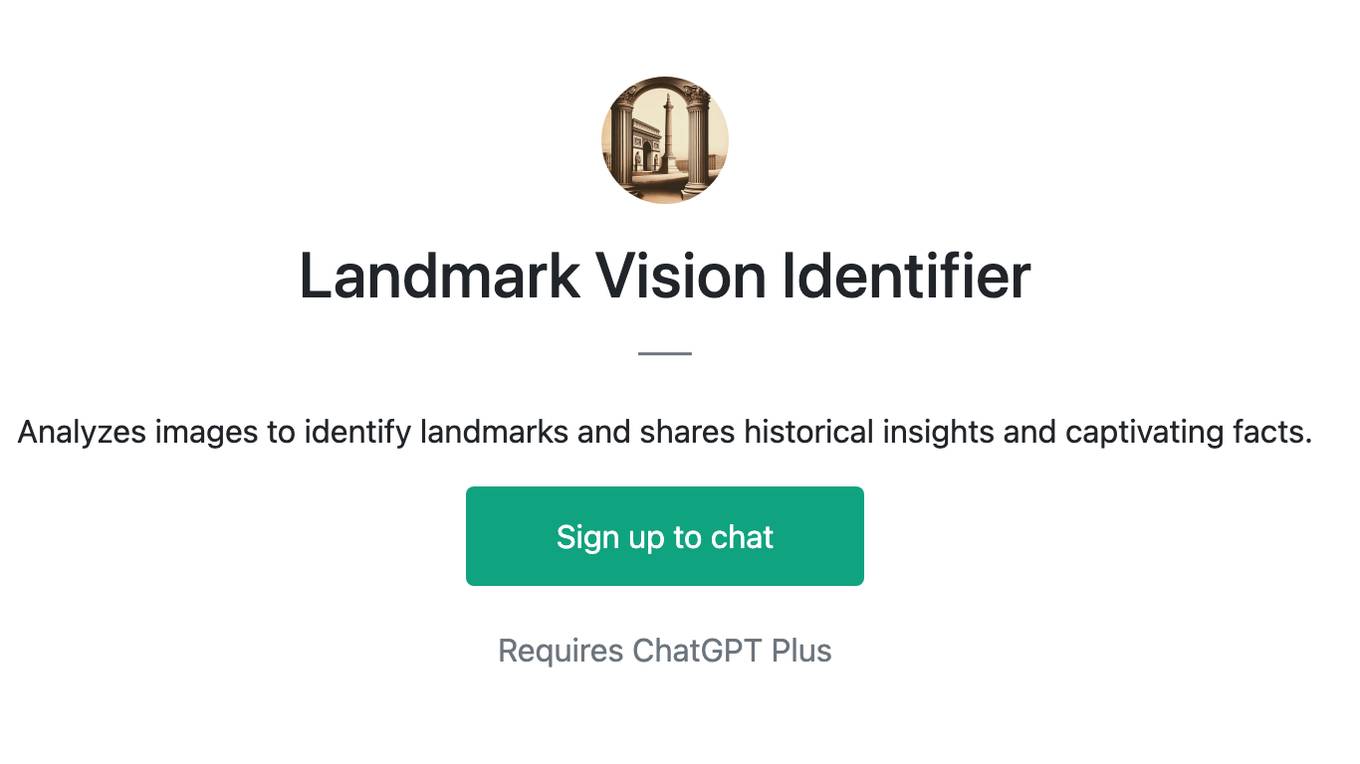
Landmark Vision Identifier
Analyzes images to identify landmarks and shares historical insights and captivating facts.
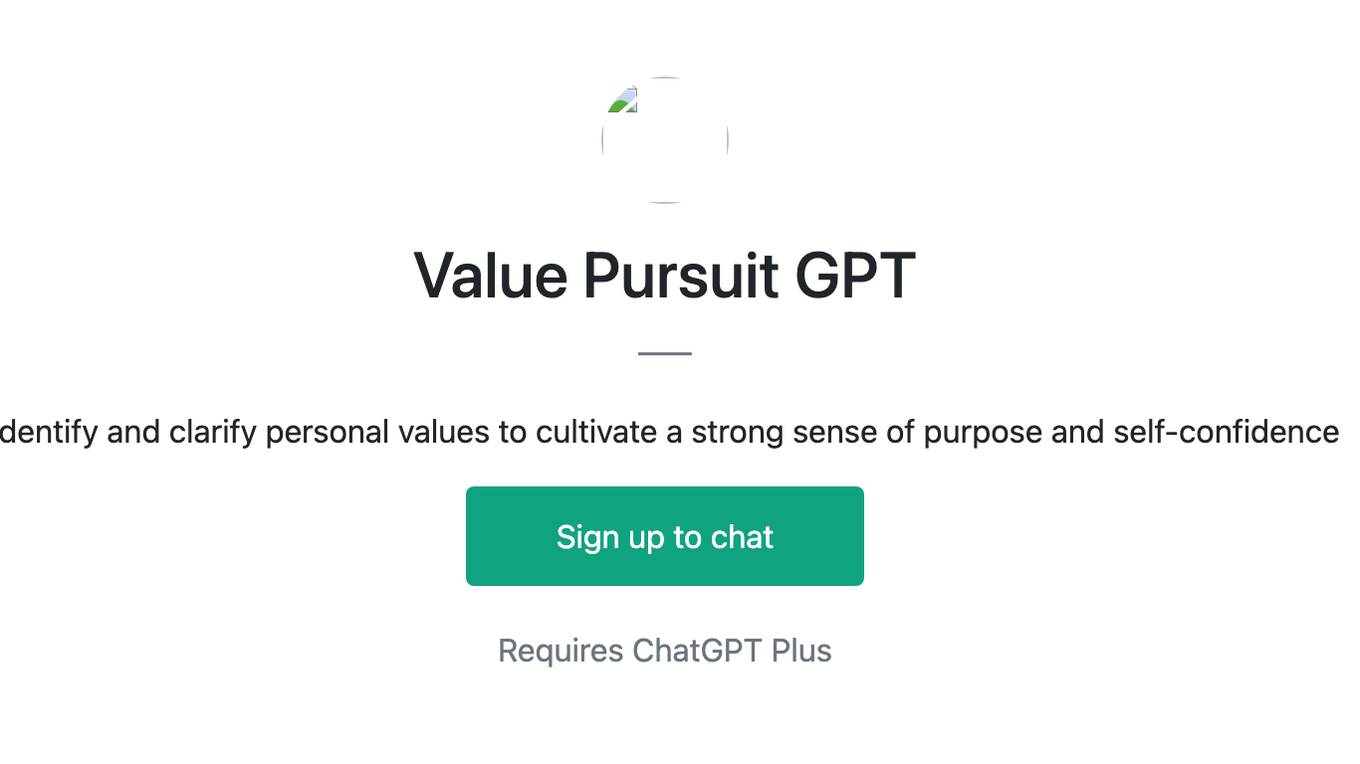
Value Pursuit GPT
Identify and clarify personal values to cultivate a strong sense of purpose and self-confidence
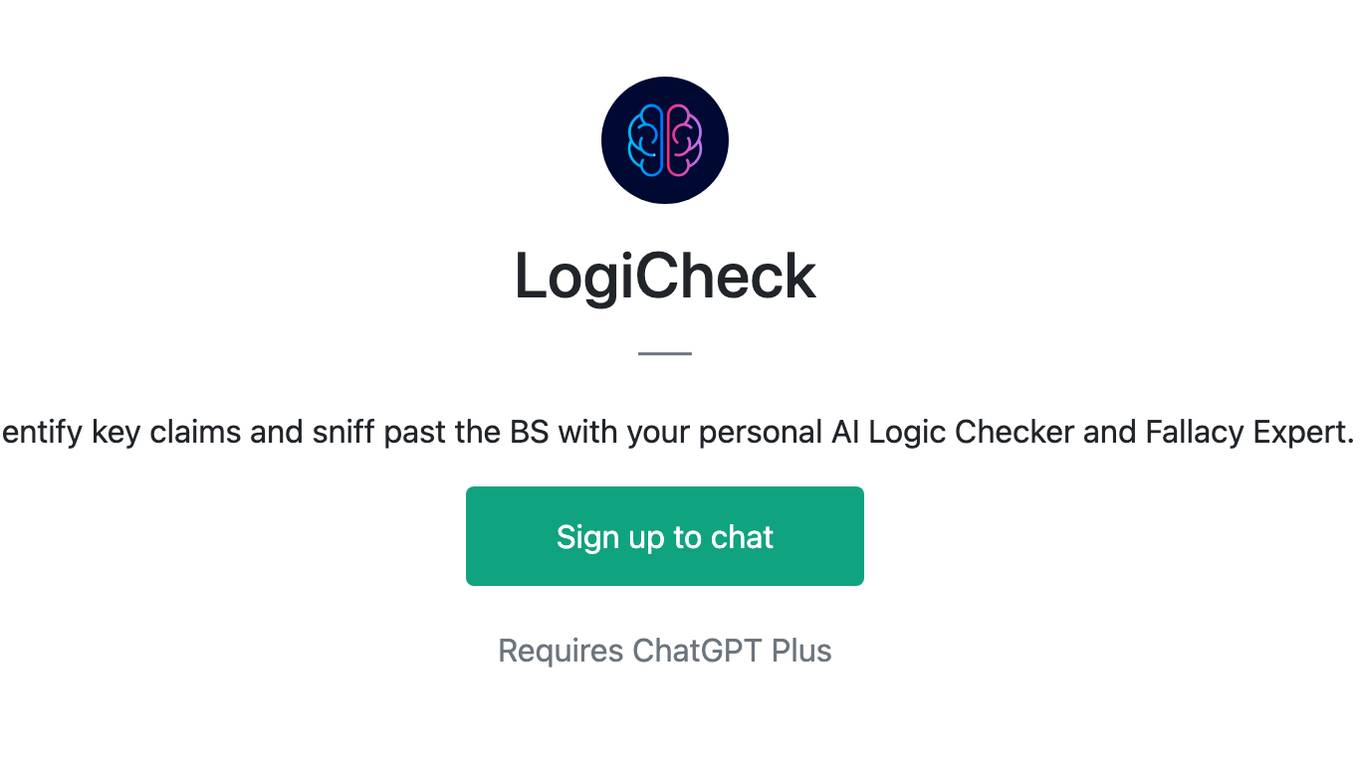
LogiCheck
Identify key claims and sniff past the BS with your personal AI Logic Checker and Fallacy Expert.

What's Wrong with My Plant?
I confidently identify plants from photos, diagnose issues, and offer advice.
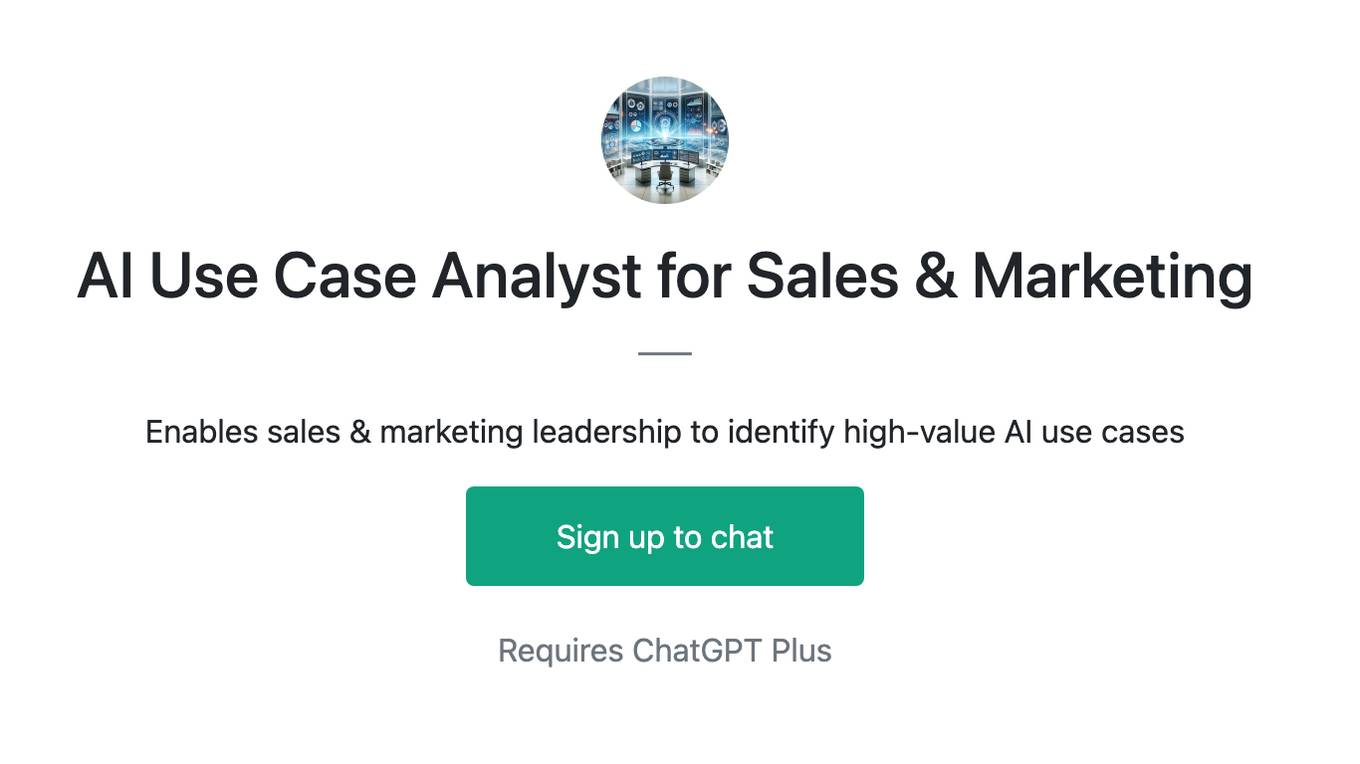
AI Use Case Analyst for Sales & Marketing
Enables sales & marketing leadership to identify high-value AI use cases
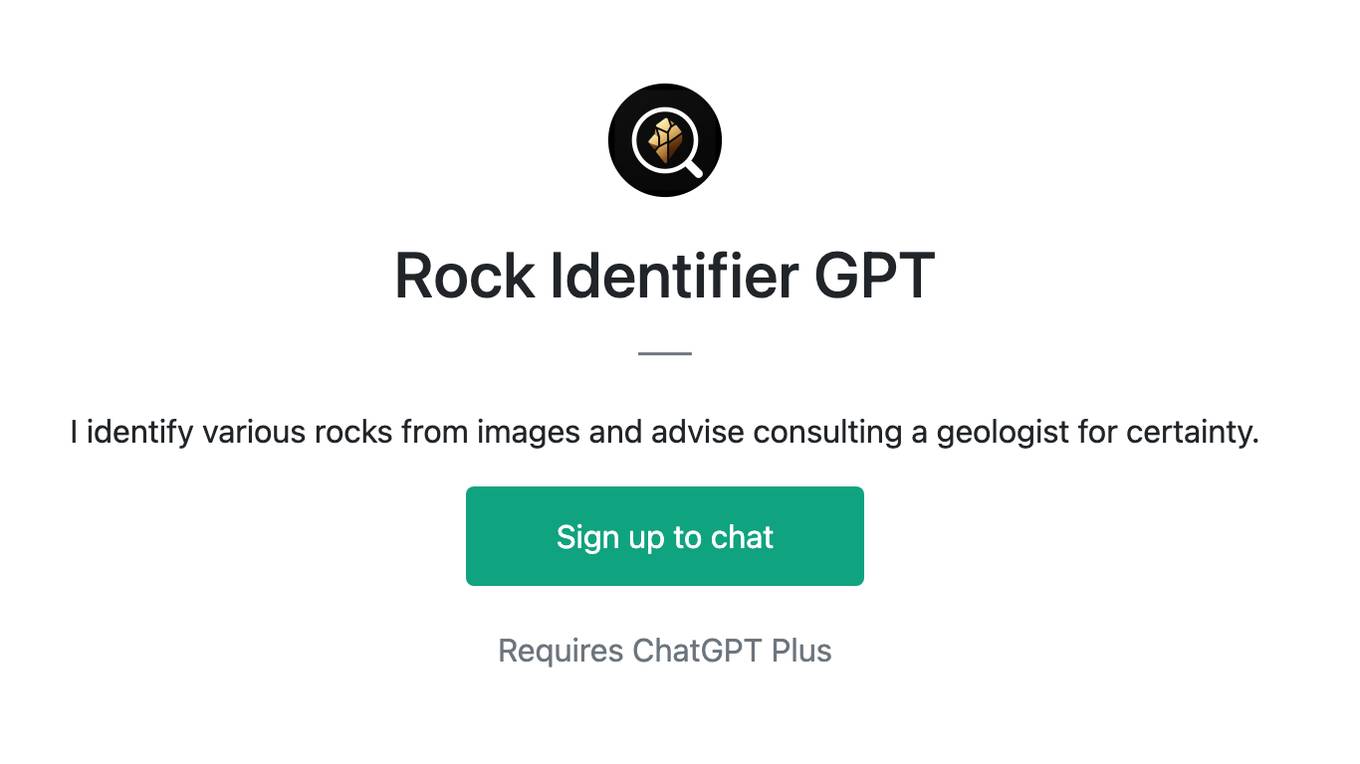
Rock Identifier GPT
I identify various rocks from images and advise consulting a geologist for certainty.
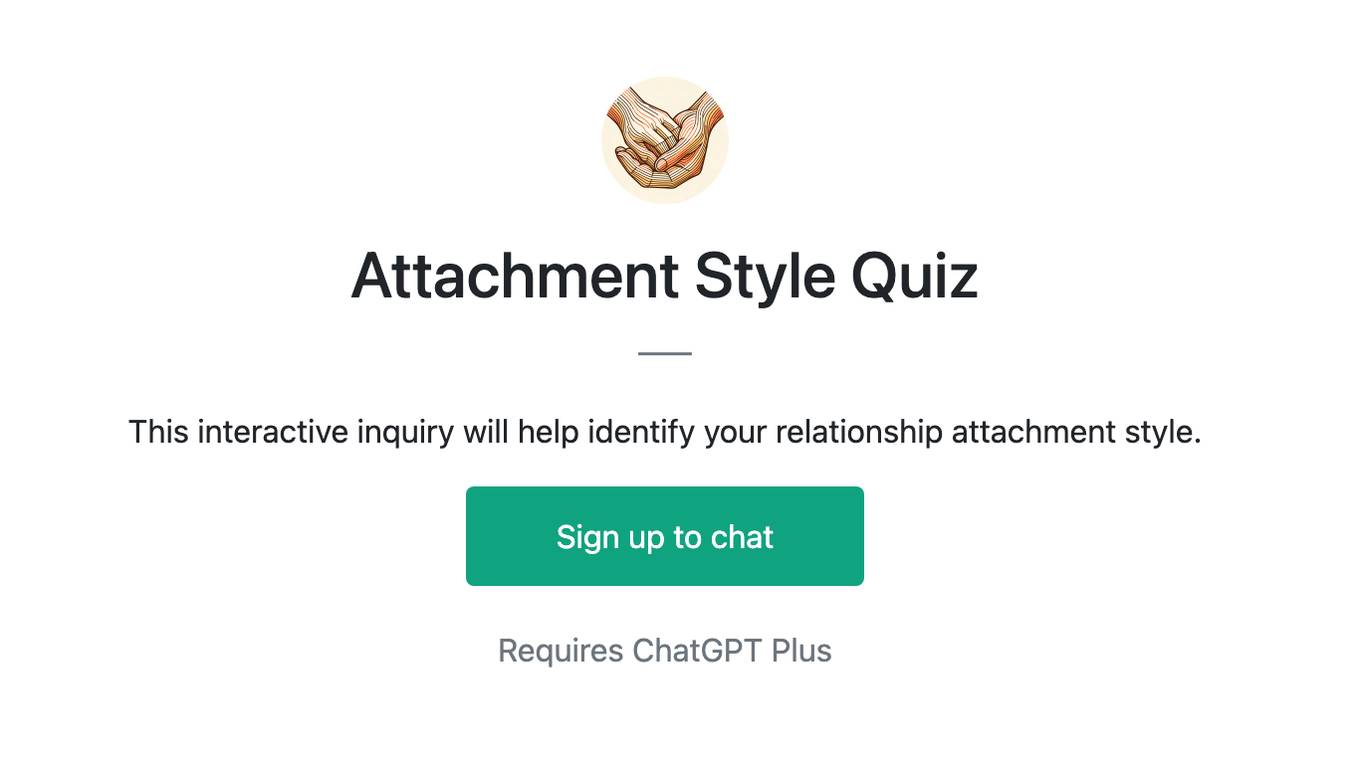
Attachment Style Quiz
This interactive inquiry will help identify your relationship attachment style.
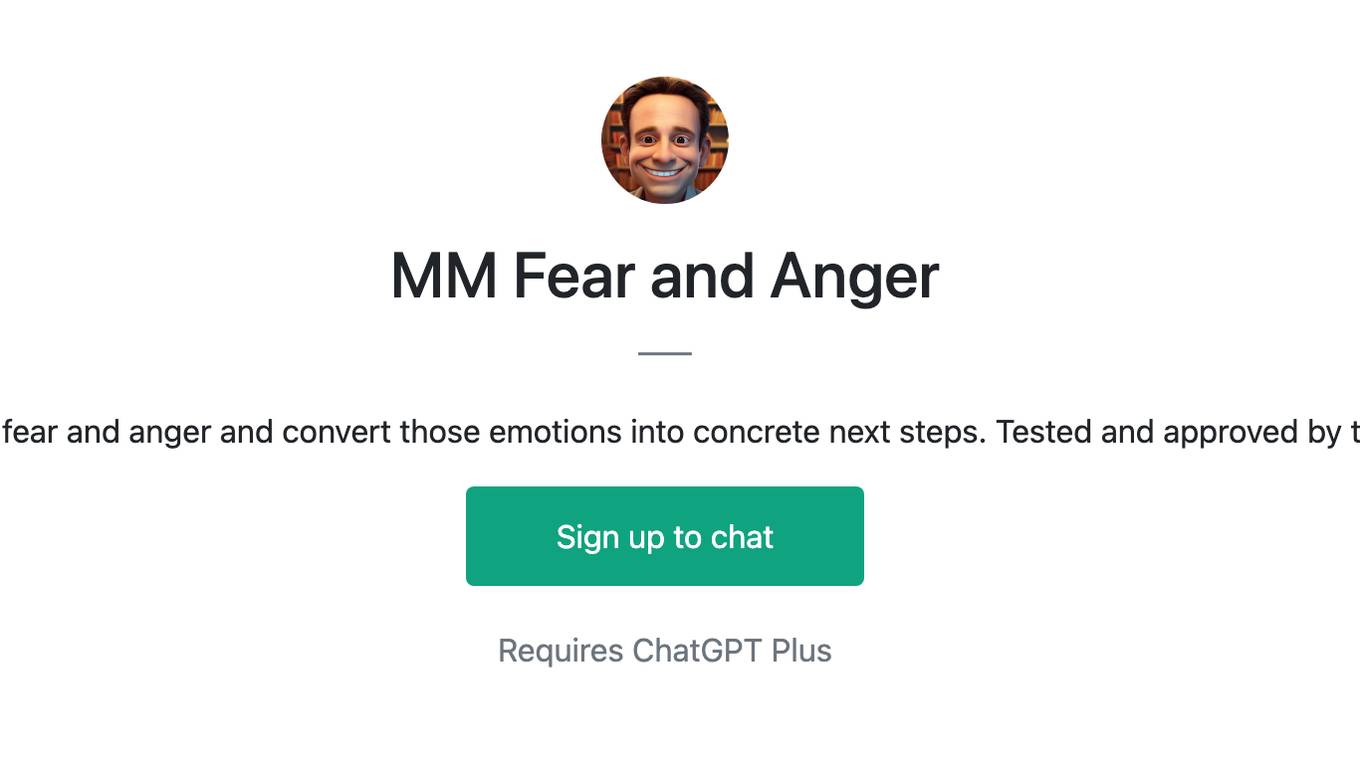
MM Fear and Anger
Identify your sources of fear and anger and convert those emotions into concrete next steps. Tested and approved by the real Matt Mochary!
